
December/January 2023 | Volume 32 Issue 6 linkonline.com.au $9.95AUD / $11.50NZ to find a cure for Spinal Cord Injury In this issue: A distillery enterprise with a charitable mindset / The distortive impact from ableist labels / Tips to keep up with assistive technology practice / A school with an impressive inclusion policy; Employment / Happenings & MORE
spirited effort
A

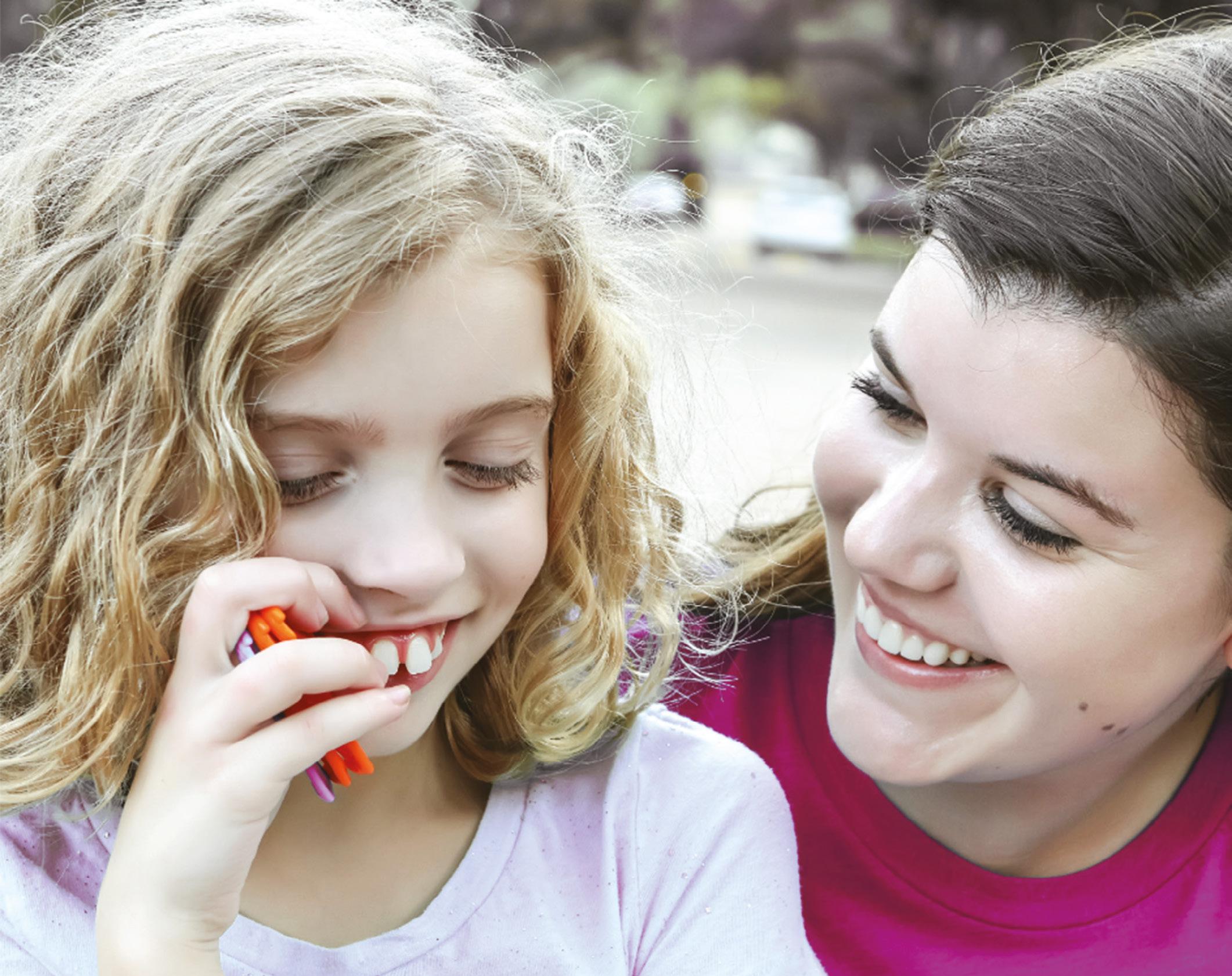





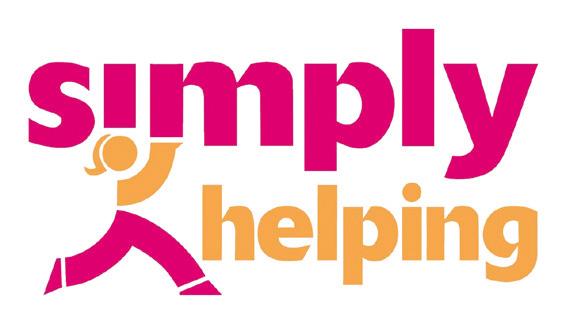
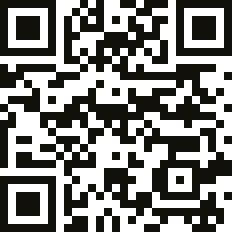


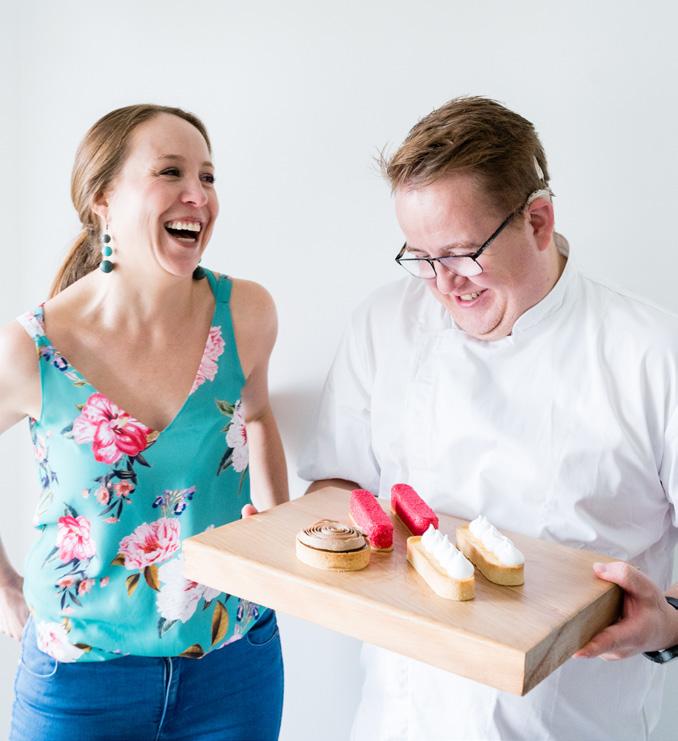
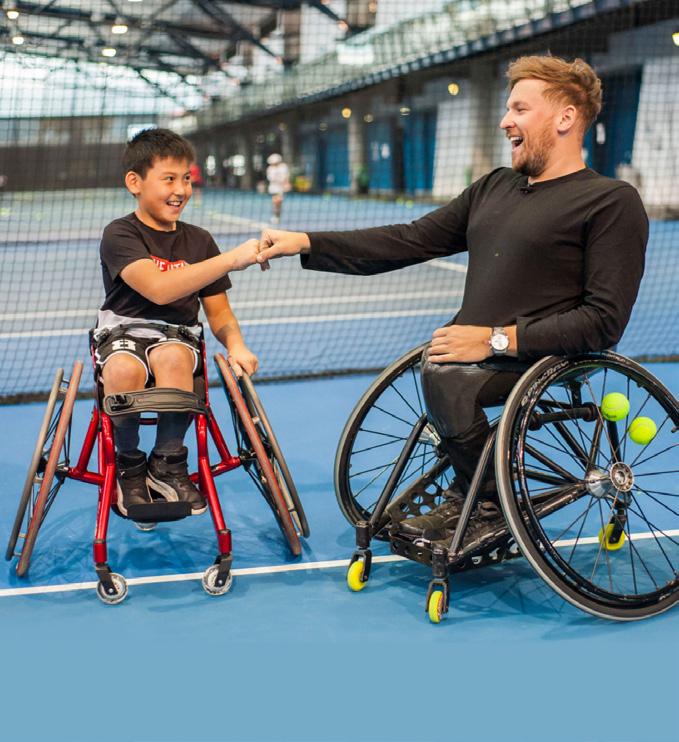

44 20 06 From the Editor 08-09 Cover Story – Dean Martelozzo and his efforts to find a cure for spinal cord injury 12-13 Ableism and its corrosive impact on the disability community 16 Wishing & Planning a Happy and Inclusive Holiday 18-19 Not just desserts - a patisserie that delivers more 20-33 Employment 44-53 Accommodation & Home Support 64-65 Education – a school that fosters an inclusive policy 08 Inside 18 12 16 December/January 2023 4

Publisher Simon Cooper
Editor Kymberly Martin kymberly@intermedia.com.au
Advertising Michelle Stevens mstevens@intermedia.com.au 0419 822 717
Design Sarah Vella
Prepress Tony Willson Production Manager Jacqui Cooper
Subscribe To subscribe visit www.intermedia.com.au
P: 1800 651 422 or
E: subscriptions@intermedia.com.au www.linkonline.com.au
Link is published six times a year by Interpoint Events Pty Ltd.
ABN: 9810 451 2469
A: 41 Bridge Road, Glebe NSW 2037 P: +61 2 9660 2113
F: +61 2 9660 4419
Reprints from Link are permitted only with the permission of the publisher. In all cases, reprints must be acknowledged as follows: ‘Reprinted with permission from Link Magazine’, and must include the author’s byline.
The opinions expressed in this publication are those of the authors and do not necessarily represent those of the publisher.
The Intermedia Group takes its Corporate and Social Responsibilities seriously and is committed to reducing its impact on the environment. We continuously strive to improve our environmental performance and to initiate additional CSR based projects and activities.
As part of our company policy we ensure that the products and services used in the manufacture of this magazine are sourced from environmentally responsible suppliers.
This magazine has been printed on paper produced from sustainably sourced wood and pulp fibre and is accredited under PEFC chain of custody.
PEFC certified wood and paper products come from environmentally appropriate, socially beneficial and economically viable management of forests.
The wrapping used in the delivery process of this magazine is 100% recyclable.
From the Editor
In this summer edition you will find two stories that by sheer coincidence have taken out the 2022 Australian Disability Service Awards.
Congratulations to Hotel Etico for its trainee program (see pages 32-33) and Hireup (pages 52-53) and its Good Life Awards. Congratulations are also in order for WeFlex, a finalist in the awards. (page 56). WeFlex was our cover story in the October issue.
Go to pages 62-63 to read the full story on this award-winning night of nights held on the Gold Coast which Link attended. There was an impressive list of speakers at the conference that included disability advocate Dr Dinesh Palipana and Paralympians Karni Liddell and Geoff Trappett.
Our cover feature is about paraplegic Dean Martellozzo who is raising not just awareness but funds for spinal cord injury research. The idea was born after he joined three mates to establish a gin distillery…a story you might like to raise your glasses to!
Also, in this issue Alex Oswald has written a compelling piece about the damaging effects ableism can have on a person with disability. And the power of words that can either take down or reinforce the barriers that isolate people with disability.
And read about a brother and sister act that is GingerSnap, one of the few small businesses in Australia to be co-founded by a person with disability.

If you struggle to distinguish between a shampoo and conditioner, then our Giveaway could be for you. Sisterwould haircare products are formulated with different textures to make it easier for those who are blind or visually impaired and carry braille and tactile labelling. Find out how to enter on Page 67.
This is our final issue for 2022. The Link team wish all our readers a very Happy Christmas and Peaceful New Year.
Kymberly Martin | Editor
kymberly@intermedia.com.au
Like us on Facebook /linkdisabilitymagazine

6 December/January 2023 linkonline.com.au
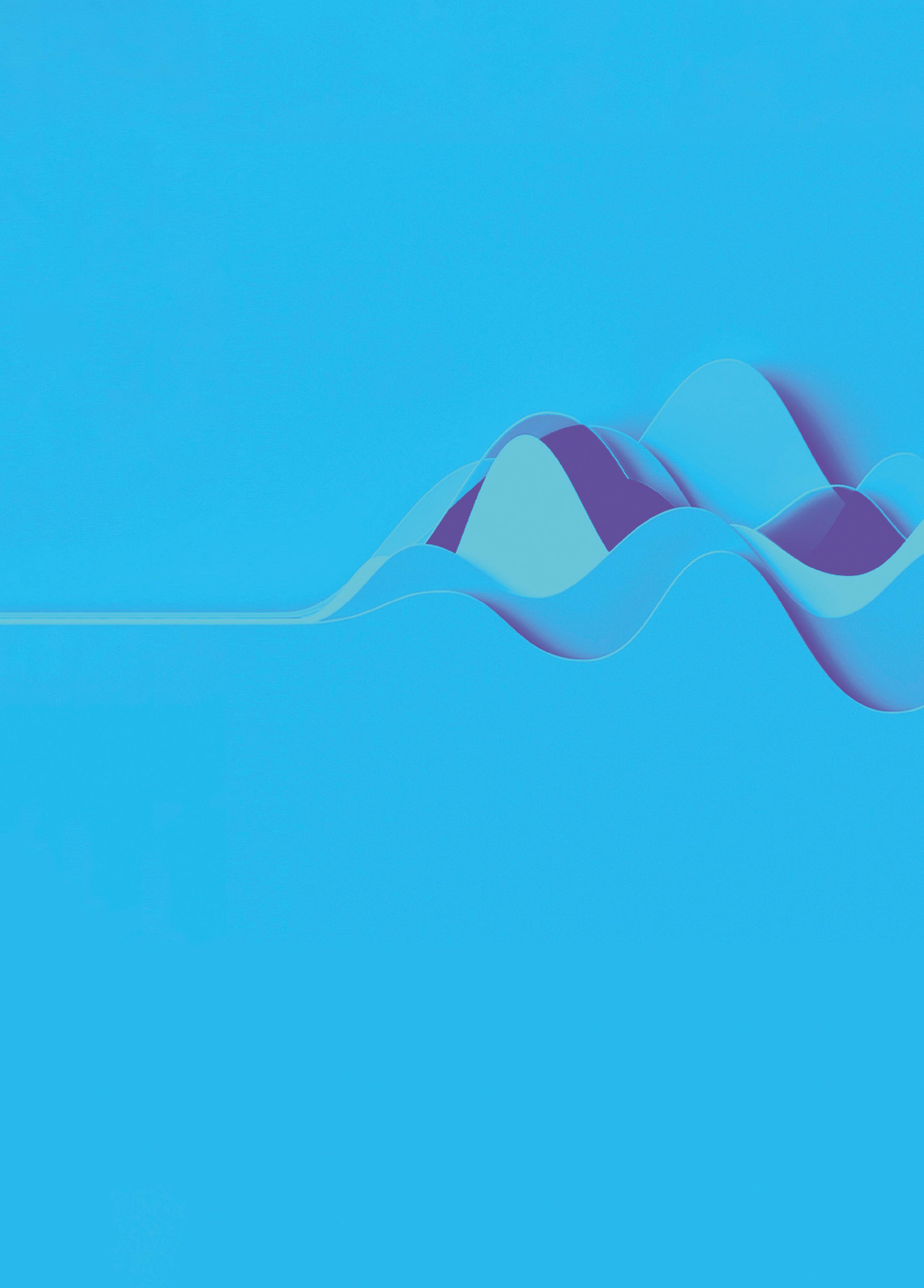
Connected Care. Anytime, anywhere. KPMG Community Care A cloud-based care management platform for NDIS providers. © 2022 KPMG, an Australian partnership. All rights reserved. October 2022. 905998202ISV. A single view of customer Deliver quality care with real-time data at your fingertips Personalised and frictionless Attract and onboard clients with a seamless user experience Quality and compliance, built-in Inspire confidence in front line staff and regulators A global partner Microsoft Dynamics 365 Business Applications with CRM and ERP functionality Leverage KPMG’s deep sector experience in Health, Ageing and Human Services to streamline your processes and focus on the people who matter. Get in touch: KPMG.com/au/CommunityCare-Link
Gin distillery a tonic for Spinal Cord Injury
An accident while snowboarding in the French Alps left Dean Martelozzo a paraplegic. After rehab he went back to university, completed his MBA, joined a US financial services firm and while out with three mates hit on the idea to set up a distillery.
and awareness because my goals certainly align with SpinalCure,” he said.
“For me, it was the fact that it is out there working towards the cure. While I know that sounds obvious, it is the key motivator for me. I live with the dream of being able to return to life the way it was before the day my luck turned against me in 2011.
“I know that it’s far more complex than that, but I am attracted to the fact that they are trying to find the ‘cure’ to the injury and not just make it easier to live life now that I’ve had one. Both are incredibly important, but I’m the eternal optimist that will always go for the glory.”
In 2015 his night out with childhood friends came to fruition. The Headlands Distilling Company in Wollongong on the NSW South Coast was launched with a charitable mindset, agreeing to donate 20 per cent of its profits to SpinalCure.

“Jared Smith is a chemical engineer and had the production capability, Lachlan Hingley brought in his medical and health science experience and Thomas Simnadis had a lot of contact with grain farmers through his PhD which was very helpful as grain is a key ingredient for making alcohol,” Martelozzo said.
From small things little thing grow and the products are now sold online, in bottle shops, bars and restaurants. They are receiving international awards for their uniquely Australian products, including medals at the London and San Francisco world spirits competitions.
“To the best of our knowledge, our Boobialla gin is the only gin in the world made exclusively with native Australian juniper and our Tidal Lines gin is crafted from a local indigenous fruit called the Illawarra plum. We are also working on whisky finished in authentic sherry casks from Spain and have three different varieties with a first release scheduled for Christmas.”
T he decision to take SpinalCure aboard came about when his friend Xander Beccari cycled from Brisbane to Wollongong to raise money for people with spinal cord injury.
“Xander did a lot of research because he wanted the money donated to have the highest possible impact. After he told me about SpinalCure, I looked at how the charity operates, what they do and more importantly, how they do it. The more I learned, the more I wanted to get involved and help raise money
As well as a diverse set of products, Headlands has a diverse workforce as well.
T his year Martelozzo was made an inaugural SpinalCure Community Ambassador with two big fundraising events held, including the inaugural Dubbo Race Day and the Everest Fashion Carnival supported by the ATC Foundation.
“ We are fortunate to have relationships with groups like these. While the link between the risk of spinal cord injury and horse racing are clear, we are always on the lookout for opportunities to explore new avenues to raise funds and spread the awareness of our cause,” he said. “If you know of anybody that wants to help, tell them to get in touch! Every conversation is valuable because it provides us an entry into a new network.
Link to... Cover Story
December/January 2023 8
Dean Martelozzo
There are so many people out there that support what we do, we just need to make the connection.”
Covid puts a hold on business
According to Martelozzo, Covid was a horrifying time “when everyone was trying to work out what was going on”. People in healthcare, education, the police and local businesses were concerned when their access to hand sanitiser ran dry and another idea was born. “We stopped making drinking alcohol for a few months and concentrated purely on making sanitiser. It was frightening to be one of the only sources of sanitiser in Wollongong, but we had the capacity to make it and at the time it was seen as the thing that would save us. We felt we had the responsibility to put everything into it and make it available to the community. We still produce Barleysan as a lot of our customers prefer it to imported products on the market.”
A s well as a diverse set of products, Headlands has a diverse workforce as well. Zac, one of their fulltime staff members is neurodivergent – which in his words is the preferred umbrella term for those whose brains are wired differently. In his case, he has ADHD/ ASD (Autism Spectrum Disorder).
“I’m the production manager for the company” Zac said. “I oversee the fulfilment of orders placed and manage the process after we have made the product. Bottling, labelling, corking, wax dipping and boxing to be ready for shipping. We aren't at the full automation stage yet and we still do everything by hand. I love my job here because there are so many additional quirks to the role that I feel is just perfect for the way I cognitively work. The master distiller whom I work with daily is incredibly supportive and lets me run with my 'different' ideas; some work, some don't. Regarding the ones that don't, I'm not met with anger 'for stuffing around' like has happened at every other job I've worked. I think they just enjoy seeing something different."
“ We had no idea when he started working for us” Martelozzo said. “But more importantly, we don’t care.
He’s been working with us for over 12 months now and we’re incredibly lucky to have him. He looks at things from a different perspective and consistently builds improvement into our processes”.
Meeting the challenges
Looking back to those critical moments in the French Alps and his life today, Martelozzo believes he is one of the lucky ones. He was candid about how he felt when he thought the life as he knew it was taken away in a heartbeat. Whilst he says that “it sucks that there will always be restrictions and I physically cannot do everything I want to, it’s incredible how many opportunities have come my way.” His advice is to “embrace it. Don’t be scared like I was and don’t be afraid to speak up for yourself or ask people for help if you need it”.
He said people come up and start doing things for him without asking. “I appreciate that they mean well when they are trying to help me push up a hill or open a door for me, but I am still capable. I like to keep my independence where I can, and I don’t care about protecting my ego. If I need help, I will ask for it.”
An example of this was during his solo journeys across Europe in 2016, lugging a backpack and suitcase. Visiting a cathedral in Copenhagen he was confronted by a long flight of stairs to the entrance which were impossible to navigate in his wheelchair. “Two guys were standing there talking and I gestured to them with a lifting motion of my hands to my wheelchair. These guys helped me up the stairs and a different group were happy to help me back down when I left. If I didn’t have the confidence to ask, I would have missed out”
Perhaps a measure of his independence was evident that before leaving Australia, he bought a one-way ticket to Poland. “I wanted to go to Scandinavia, so from Poland I booked a flight to Estonia then boats to Finland and Sweden, trains through Norway and a flight down to Denmark.”
He met up with friends in some cities but travelled on his own, determined to
prove that he had the capacity to meet any challenges.
“I did many amazing things and met new people I am still friends with today. Absolutely there were situations I missed out on because they were physically impossible, but you will be surprised at how much is there to experience if you approach it the right way. You never know what is around the next corner. It’s better to get there expecting sunshine on the other side than storms. The trip in 2016 was awesome… one of the best trips of my life and I’m always planning my next trip.”
He said a strong network of family and friends has always been around to support him, especially through the initial stages of rehabilitation, and without them it would have been difficult.
He works Monday to Friday in his main job as an investment performance and risk analyst with Morningstar. The distillery is his weekend role, either working on site or attending related events and markets.
But supporting the charity is very much front-of-mind and he wants to do all he can to raise its profile in the community. He is confident a cure for spinal cord injuries will be found and the more funding that goes into research the better.
“If you put enough money into the research, even pigs will fly. Let’s just forget about the pigs for the moment and help me get back on my feet first. Put that money into spinal cord injury research instead”

COVER STORY
linkonline.com.au 9
Volunteering with the Jawun Foundation with a smoking ceremony at Lake Mungo
As market leaders in special needs equipment in Australia, Astris PME carries an extensive range of exercise and recreational equipment that have been created to meet the needs and requirements of people who want to improve their everyday lives by getting out and about independently. We can provide solutions that match the needs of people with a disability, and help therapists achieve the best outcomes for every client, in every age bracket. Astris PME have a huge range of trial equipment available so if
would like to make an appointment with one of our Specialist Consultants or











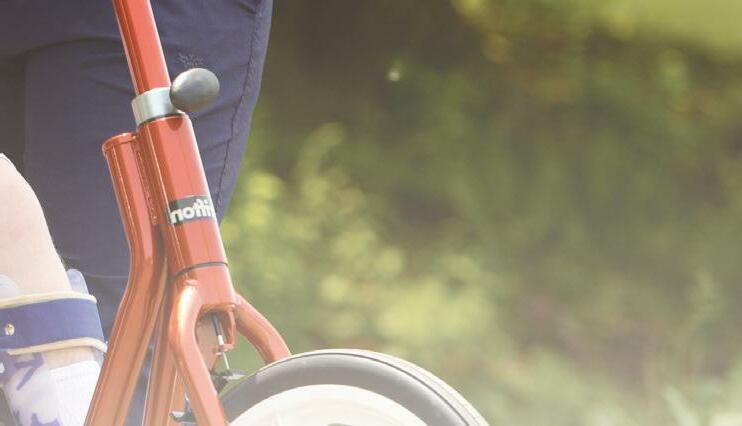
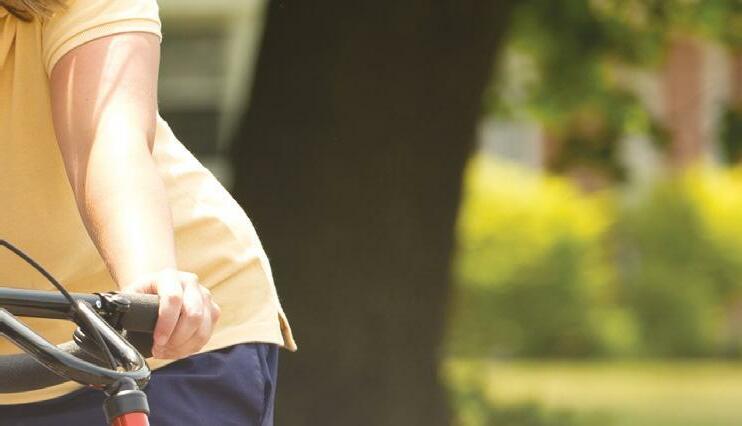

















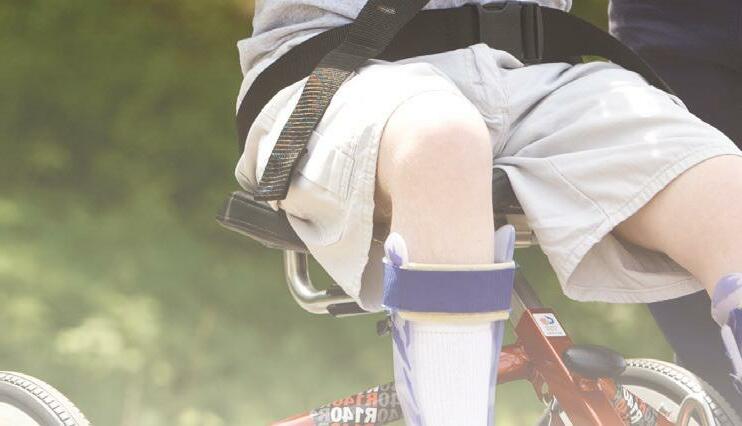


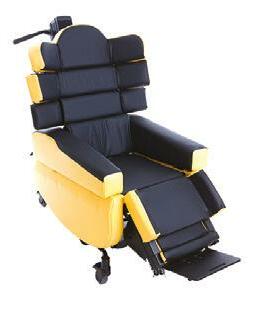
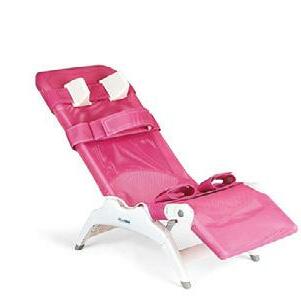

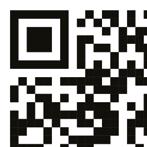
As market leaders in special needs equipment in Australia, Astris PME carries an extensive range of exercise and recreational equipment that have been created to meet the needs and requirements of people who want to improve their everyday lives by getting out and about independently. We can provide solutions that match the needs of people with a disability, and help therapists achieve the best outcomes for every client, in every age bracket. Astris PME have a huge range of trial equipment available so if you would like to make an appointment with one of our Specialist Consultants or enquire about any of the products and services we offer, please call us. We will be happy to help!
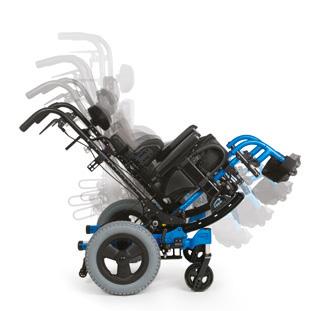


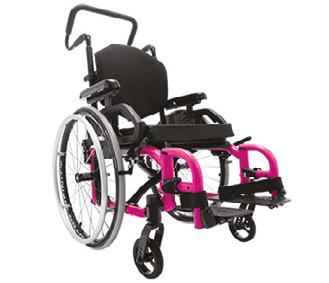
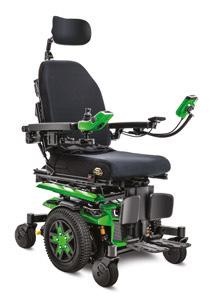
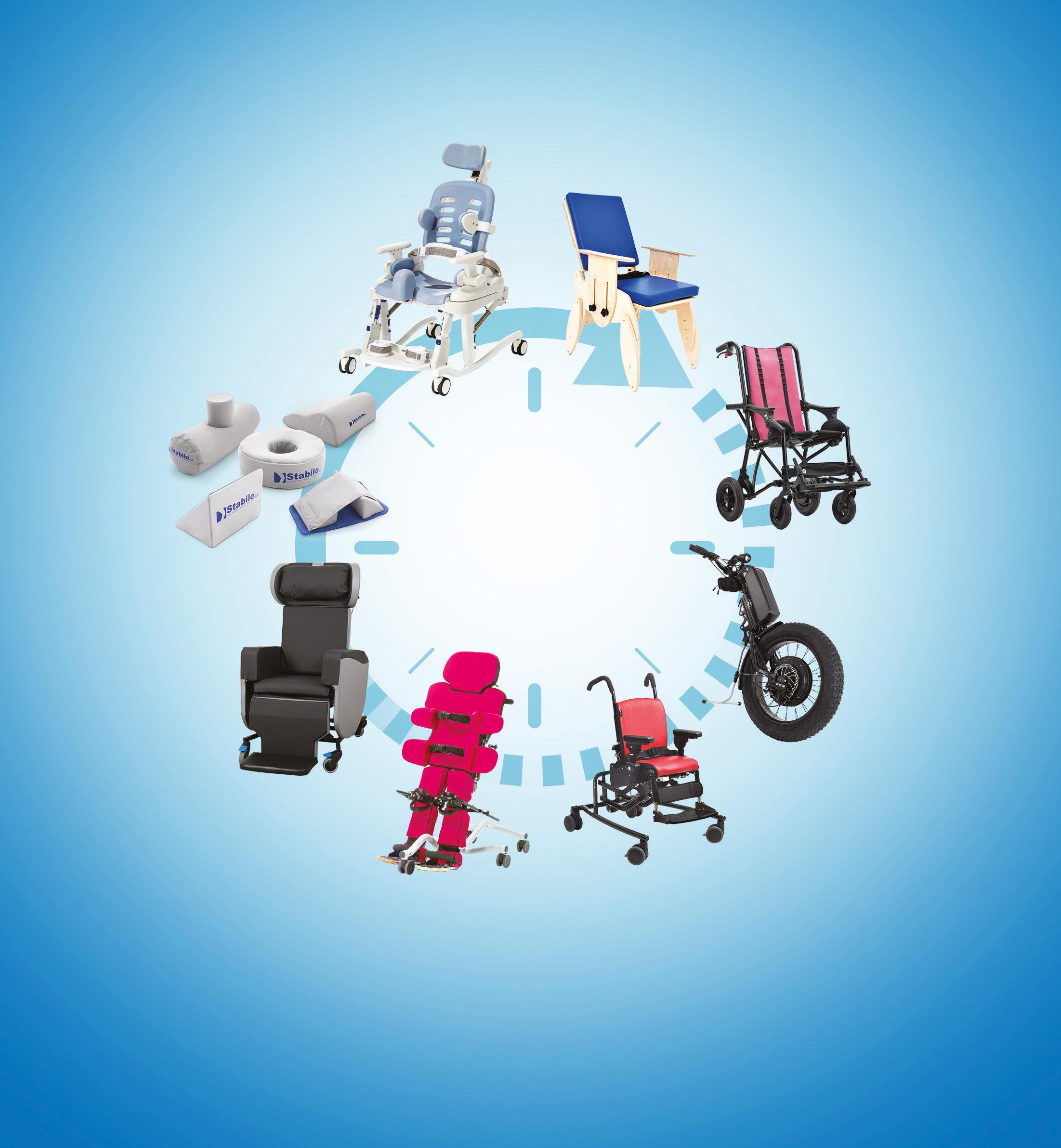
we offer, please call us. We will be happy to help!

1300 131 884 | astris-pme.com.au Showrooms in Sydney • Newcastle • Young • Canberra • Melbourne • Brisbane
Discover The Joy
FREE TRIALS PRODUCT SPOTLIGHT Free gift with purchase Scan the QR code to learn more Manual Wheelchairs Positioning & Sleep Systems Standing Frames Gait Training Tilt-In-Space Wheelchairs Shower & Toileting Supportive Pushchairs Powered Wheelchairs Exercise & Recreation Alternate Seating 1300 131 884 | astris-pme.com.au Showrooms in Sydney • Newcastle • Young • Canberra • Melbourne • Brisbane
Discover The Joy
about any of the products and services
FREE TRIALS PRODUCT SPOTLIGHT Free gift with purchase Scan the QR code to learn more Manual Wheelchairs Positioning & Sleep Systems Standing Frames Gait Training Tilt-In-Space Wheelchairs Shower & Toileting Supportive Pushchairs Powered Wheelchairs Exercise & Recreation Alternate Seating
you
enquire





















































DEALERS AUSTRALIA-WIDE apexmobility.com.au 1300 212 192 DEALERS AUSTRALIA-WIDE apexmobility.com.au 1300 212 192 24-Hour Positioning APEX Mobility supplies Australia’s largest range of specialised Assistive Technology equipment and supports for 24hr positioning, mobility and care. Akces Med Kidoo Rifton HTS Ormesa Trollino 10AM12PM 8-10 AM 6-8 AM 9PM6AM 12-2 PM 2-4 PM 4-6 PM 6-9 PM Klaxon Klick Monster Rifton Activity Chair Hi-Lo Schuchmann TILL STABILObed Careflex MultiAdjust
The Distortive Impact of Ableist Labels on the Community of People with Disability
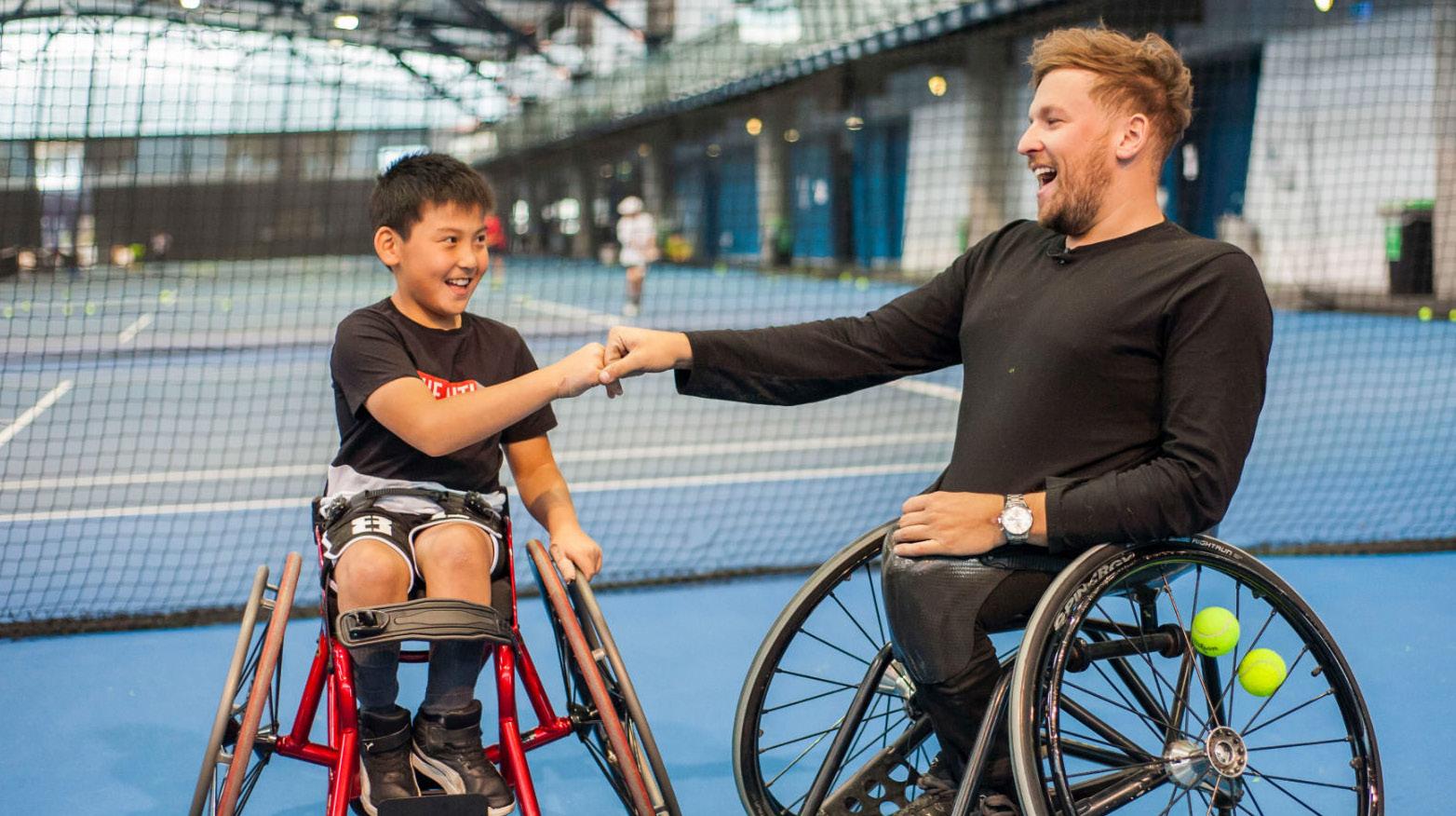 By Alex Oswald
By Alex Oswald
Ihave heard it on the sports field, in the school yard, at the office and on the worksite. I have heard strangers, friends, family and even myself say it. What’s more, I’m sure you have too.
T he words of ableism, such as ‘blue bus,’ retard, spastic and, cripple are firmly entrenched in general conversation. They form the basis of jokes, insults, and moments of selfdeprecating humour.
W hen I was growing up, I was always told that if you wouldn’t say it to their face don’t say it at all. This ‘Golden Rule’ of language choice provides a tried and tested method for separating the words that we should and should
not use. Yet, it is a principle that we seem to struggle to apply in relation to ableist labels.
Now, I don’t believe that much has to be said to point out the wrongs of using ableist labels in front of someone with a disability. But it is interesting that, when the presence of a person with a disability is not “obvious,” the use of ableist labels is tolerated.
A nd its presence is tolerated more than many of us would like to think. Research Kantar suggests that 70 per cent of posts about people with intellectual disabilities are negative with 90 per cent of those posts containing a slur.
Considering that on December 3 we will be celebrating International Day for People with a Disability, my question is this: Does our use of ableist labels negatively colour our perceptions of those with a disability?
T he answer is that it absolutely does. Ableist labels reinforce attitudes towards a group that already struggles to be seen as equal and valuable by wider society.
W hen we use an ableist label to describe others or ourselves we are generally saying that they performed an action so poorly that they would have to have a disability to excuse it. Contained within this, is the idea that
Link to... News December/January 2023 12
the person failed to meet a common ‘normal’ level of proficiency. Essentially, no one wants to be called an ableist label. It is considered an insult and something to be avoided.
My purpose here is to present another perspective. To show that our words are powerful. That they do have the ability to either take down or reinforce the barriers that isolate people with a disability.
T his reasoning aligns with the work of philosopher Charles Taylor and his ‘Politics of Recognition.’ Taylor argued that our sense of self-value is heavily influenced by those in the society around us. Amongst others, this is conveyed through everyday micropractices such as the media, culture and the language we use. This creates an environment wherein our identity is either affirmed or denied.
Changing the perceptions of disability
I n recent history the importance of language has been recognised in the way legislation has been written. In 2009, President Obama signed what was known as ‘Rosa’s Law,’ to change references to people in US Federal Law from ‘mental retardation’ to people with an intellectual disability.
However, it is important to note that the ‘Politics of Recognition’ seeks to look beyond the laws which technically make people with disability our equals in society. A claim that, in Australia, is already on shaky ground through the work of the recent Royal Commission into Violence, Abuse and Neglect of People with a Disability.
Reinforcing this, the disability rights activist Denise Sherer Jacobson observed that “you can pass a law but until you change society’s attitudes that law won’t mean much.” This correlates to the environment created by the words of ableism which affirm the inferiority rather than validity of people with disability. The use of these words forms another obstacle that people with disability do not deserve. This prevents them from seeing the importance of their voice and the role they can play in enriching our lives.
T he current Australian of the Year, tennis player and wheelchair user Dylan Alcott has spoken powerfully throughout this year about his experiences coming to terms with his own disability: “I used to hate myself so much, I felt like a burden on society, on my parents, a burden on my brother. I used to get called a cripple everywhere I went. I believed that.”
Based off these experiences Alcott has set himself the goal of changing perceptions of disability. Echoing the words of Jacobson, he sees a society that has embraced accessibility but not necessarily inclusion: “you can have the best ramps but not care about the people that you have within your store, within your school.”
can learn are distorted and suffocated by the labels of ableism.
T his December marks International Day for People with a Disability. A day which aims to raise awareness, understanding and acceptance of people with disability. Additionally, it seeks to remind the world of the important role people with disability occupy by celebrating their achievements.
A bleist labels work directly against the aims for a fairer and more inclusive society. The conversational convenience they provide is prioritised over the deeply concerning ideas they promote. As a society, we are better than this.
W hilst it is only a small habit change, removing ableist labels from our vocabulary and the vocabulary of those in our network, will improve our respect for people with disability and how we perceive them.
For Alcott, one of the reasons for this is an unconscious bias which, fuelled by ableist labels, causes people to stigmatise and lower expectations of those with disability. This unconscious bias is something I have had to grapple with over the course of my last four years as a support worker.
W hen I began as a support worker, my opinions of what the job entailed were shaped by stereotypes of people with a disability. I was influenced by an unspoken prejudice, assisted by the labels of ableism, that made me think that ‘looking after’ someone with a disability required being a ‘saint.’
W hat I quickly found was that it doesn’t. With all the people that I have worked with, I have observed a tremendous power within them. An ability to inspire the best aspects of the human character from those they meet. Amongst those I have worked with there is a unique sincerity and genuine happiness that characterises their interactions. The individuals I work with have become my exemplars for the way I should treat the people around me in my life. These crucial lessons that we
Speaking to this, Dylan Alcott challenges us to “challenge [our] own unconscious bias. When you see someone have a bias, call them out, talk to them about it, educate them, provide stories.”
Framed in this way we have everything to gain and nothing to lose from parking terms like the ‘blue bus’ forever.
Holiday Entertainment:
For those readers out there Growing Up Disabled in Australia edited by Carly Findlay is a fantastic collection of short stories by those with lived experience of disability.
For those who want something more visual, look no further than ‘Crip Camp: A Disability Revolution.’ Released in 2020 the documentary follows the story of a summer camp for teens with a disability which inspires them to join the radical disability advocacy group fighting for legislative changes.
T he movie is available on Netflix and the iMovie store.
NEWS
‘You can pass a law but until you change society’s attitudes that law won’t mean much’
linkonline.com.au 13
Is disability employment finally heading in the right direction?
By Natalie Wade
Employment for people with disabilities is on the precipice of having a renaissance in Australia now.
Following on from the Jobs and Skills Summit held in September 2022 and Australia’s Disability Strategy Forum 2022 held in November 2022, there is a clear goal to, and investment in, by government, industry and the community to get people with disabilities into meaningful, open employment.
Historically, people with disabilities have been denied the right to work by inaccessible workplaces and recruitment practices and alternatives such as sheltered workshops, now known as Australian Disability Enterprises (ADEs), were poor substitutes, offering further human
rights violations beyond the failure to provide the right to work, such as paying well below minimum wage. With some workers employed by ADEs are lawfully paid $2 per hour under the Supported Wage Scheme.
Finally, the conversation is shifting toward not only the recognition of the right for people with disabilities to work, but to what work looks like? Approaches that segregate people with disabilities, offer only entry level roles or provide menial tasks are fast being left behind. There is an overdue and significant push towards having people with disabilities in jobs that they are good at, that they find meaning in and that offer leadership opportunities.
W ith the old approaches being left behind, there are genuine
opportunities coming forward for people with disabilities to participate in the workforce. There is a push to make workplaces more inclusive through disability inclusive training and physical accommodations. And, there is a push to get people with disabilities more job ready. Innovative solutions such as customised employment and microenterprises are thriving in an already entrepreneurial focussed landscape.
W hile there is some way to go, there is an exciting sense that we are shifting towards equal opportunity at work for people with disabilities.
Natalie Wade is founder and principal lawyer at Equality Lawyers.
PH: 08 7084 1190 or Email: natalie@equalitylawyers.com.au
National Assistance Card autism trial launched in Tasmania
A National Assistance Card to assist people living with a brain injury in the community is already available.
W ith a view to gathering the evidence to support a national autism rollout, the card is now being trialled with the Tasmanian autistic community.
National Assistance Card ambassador Ita Buttrose spoke at the launch, via video, about how the autism trial will help to increase community understanding of autism and build a more inclusive Australia.
NDIS Minister Bill Shorten also provided a statement of support on the value of the National Assistance Card to people with disability and its future potential.
The launch featured a panel of cardholders and their family members
discussing their experiences of using the card, and its benefits for family members.
Highlighting the focus on community education and awareness around the card, was Metro Tasmania general manager corporate services, Kim Perkins.

“ We look forward to working with the National Assistance Card Service in upskilling our bus operators and customer service team around awareness of the card and to equipping them with the capacity to appropriately respond when presented with the card,” she said.
T he National Assistance Card Service is also working with Tasmania police and police in all states and territories to raise awareness of the card.
For more information visit: www.nationalassistancecard.com.au
Link to... News
T he National Assistance Card Autism Trial was launched in partnership with Autism Tasmania on October 28.
December/January 2023 14
Deborah Byrne (Brain Injury Association of Tasmania executive officer), Nicho Baily (National Assistance Card holder) and Katie Cooper (Metro Tasmania CEO).


1300 789 845 www.atsaindependentlivingexpo.com.au Organised by Media Partners Australia’s foremost assistive technology event BY THE INDUSTRY FOR THE INDUSTRY MELBOURNE 24-25 MAY 2023 MELBOURNE SHOWGROUNDS Ascot Vale VIC 3032 PERTH 31 MAY - 1 JUN 2023 CLAREMONT SHOWGROUND Claremont WA 6010 CANBERRA 7-8 NOV 2023 EXHIBITION PARK (EPIC) Mitchell ACT 2911
Wishing and planning a Happy and Inclusive Holiday!
By Olivia Karaolis
The holiday season is a beautiful time of the year and one that brings people together, can involve lots of special events, foods, and experiences.
A ll of which, despite joyful intentions can bring less than joy to everyone. Particularly children and young people with autism or with sensory processing disorders,
For parents and caregivers, I think preparation is essential and the first person to prepare for the traditions of the season is your child. You can do this by talking about the up-andcoming events, creating social stories, or showing your child pictures of past
holiday events. Familiarise your child with specific places, or the names and relationships of people that your child may not have seen for some time. It also a good idea to take some time with decorating your house, and possibly involve your child, this can help them to become accustomed to the unfamiliar items in your home.
I remember a father wishing to ‘surprise’ his son with fancy Christmas lights. His son did not recognise his home and refused to enter the house until the lights were all removed. This involved hours of time. I always remind families to think about what they know about their child, do they like flashing lights, the colour red, Father Christmas,
elves, or sparkly objects? If not, it may be a good idea to reduce or minimise the decorations in your home, or the shopping centres you visit.
It will also be important to share the needs or sensory preferences of your child with family and friends. Don’t be afraid to reach out and let people know in advance about dietary preferences or other considerations that will make your visit more comfortable. Ask if it is okay to keep the Christmas lights off, keep the music low or leave the Christmas crackers until your child has left the room. You can also offer to bring a meal that is familiar and enjoyable for your child to eat. If your child is comfortable, chances are you will be too. Is there a place for your child to retreat if the party is too noisy or need a break for the festivities?
A nother way to prepare is to pack a sensory bag, and take it on visits, to events or when you travel. This bag might include squishy toys, favourite snacks, a soft toy, sunglasses to block the sun, headphones, a vest, handheld fans, or bubbles. If your child is overwhelmed at the dinner table, getting frustrated in the car, these items will give your child the opportunity to manage the information that is going on all around them and they feelings they trigger.
A lso plan an exit route, give your child the tools to tell you when they have had enough and let people know in advance that you may leave or arrive early, a short, good visit is better than a long one in which everyone is stressed. Parties tend to get louder as more guests arrive. Best not to arrive late when the party is in full swing. Take the pressure off you and your child and have a wonderful, sensory holiday!
D r Olivia Karaolis teaches at Sydney University Faculty of Education and Social Work.
Link to... News
December/January 2023 16
How do we keep up with assistive technology policy and practice in Australia?
By Libby Callaway
The year 2022 has delivered various assistive technology (AT) policy and practice reforms in Australia across both disability and aged care.
T hese changes include an intensive co-design process to develop the new approach to provision of Goods, Equipment and Assistive Technology (GEAT) as part of the Aged Care Support at Home Program, and National Disability Insurance Scheme (NDIS) mid cost AT and home modifications updates.
T hese various policy updates impact people who use AT in their own lives, as well as AT assessors and advisors such as allied health professionals, and AT suppliers.
So how do we all keep up with AT policy and practice guidance? Here are my top four tips:
1. Think globally, act locally:
T he World Health Organization (WHO) has been leading work on AT policy and practice globally, and many of the issues identified by the WHO are highly relevant to AT practice in Australia.
This year, the WHO and UNICEF released an inaugural Global Report on Assistive Technology , which offers much food for thought on both challenges and solutions to AT provision.
2. Follow the good practice steps for AT provision:
The Australian Rehabilitation and Assistive Technology Association (ARATA) has a free statement on good AT practice which can offer
a practice guide that people who use AT, or advise on or supply it, can download from the ARATA publications page .
3. Connect with an Assistive Technology Community of Practice:

Talking with people who have similar information needs or experiences can help when considering AT policy and practice.
As an allied health professional, ARATA’s biennial Australian Assistive Technology Conference – running in Adelaide from 23-25 November 2022 – is my guaranteed face-to-face catch-up opportunity with AT stakeholders and the opportunity to explore new AT products at the conference exhibition whilst the online community offers me quick options for questions and answers.
For people who use AT, these sorts of networking opportunities are also vital. AT peer support and mentoring is a growing support option, and both AT Chat and AT Australia have developed programs that may assist in these areas.
4. Follow social and digital media
and government updates:
Social media can offer real-time updates via following accounts such as the NDIS and the current NDIS, Health or Aged Care government ministers.
Subscribing to digital or print media like Link Magazine, or checking the website news tabs of organisations like ARATA and Assistive Technology Suppliers Australia (ATSA) can also offer updates.
We are going to continue to see lots of changes in AT policy and practice in the coming year and staying connected can help us all to keep up with these changes.
A ssociate Professor Libby Callaway is president of the Australian Rehabilitation and Assistive Technology Association (ARATA) and a registered occupational therapist who works across the Rehabilitation, Ageing and Independent Living Research Centre and Occupational Therapy Department at Monash University.
1. https://www.myagedcare.gov.au/news-andupdates/find-out-latest-support-homeprogram-design
2. https://www.ndis.gov.au/participants/ assistive-technology-explained#mid-cost-at
3. https://www.ndis.gov.au/participants/homeand-living/home-modifications-explained
4. https://www.who.int/publications/i/ item/9789240049451
5. https://www.arata.org.au/educationresources/publications/
6. https://aatc2022.aomevents.com.au/
7. https://www.atchat.com.au/
8. https://at-aust.org/home/what_we_do/ at_mentors.html
9. https://www.arata.org.au/educationresources/latest-news/
10. https://atsa.org.au/
NEWS linkonline.com.au 17
Sweet dreams are made of these
late 80s it was not recommended for those with the implant to learn Auslan as it was believed it would be relied on and speech and hearing would be neglected. The importance of being bi-lingual was not accepted then.
Brett’s sister Jessica said her brother has an ability to push forward on the path that he wants, in a way he wants to, and create opportunities for people with disability.
W ith her background in finance, hospitality and social enterprise and Brett’s passion for creative cooking that dream became a reality and GingerSnap Patisserie was born early this year. Located in the Melbourne beachside suburb of Mordialloc, it is one of the few small businesses in Australia to be co-founded by a person with a disability.
“ We wanted to create not only an opportunity for Brett, but for the broader disability community,” Jessica told Link
GingerSnap is a culmination of the siblings professional and personal experience, using hospitality and social media as the platform to share the stories and experiences of people with disability and build a community of like-minded people.

Brett Duncan’s cooking career began at Melbourne’s Crown Casino where he started as a kitchen hand. The casino which runs a disability employment program, CROWNability*put him through his apprenticeship which he completed last year. At the casino’s request he created a layered white chocolate and blueberry mousse cake “that blew them away”. He also recognised the
plant-based food industry was growing and had a lot of potential which made him keen to open a business.
Brett was born profoundly deaf but has a cochlear implant, an electronic device that stimulates the nerve cells in the ear, which gives him around five per cent hearing. He also communicates in Auslan although that was not always the case. In the
“I believe what we do from a social enterprise perspective is unique,” she said. “Our focus for now is on our online business. We are also building the wholesale component selling to cafes, restaurants, caterers and sporting venues.
“There are a lot of retail enterprises, employing people with disability, such as coffee shops, which is not our place in the market. Our aim is to build something that is scalable, that can deliver back-of-house opportunities,
Link to... Employment
Brett Duncan had a dream to become a pastry chef and run his own business. With his sister Jessica’s help the siblings have opened a patisserie, one of the few small businesses to be cofounded by a person with disability.
December/January 2023 18
Jessica Colgan & Brett Duncan
that gives pathways to people with disability and carries them to jobs into mainstream employment.
“The beautiful desserts we create are a great way to engage people with our newsletter and social media activities. All our current product range are ‘high tea’ desserts, like salted caramel and chocolate mousse tarts and a layered raspberry and white chocolate mousse. Very bespoke and made with vegan ingredients.”
S he said what Brett creates requires a high skill with different elements that calls for different levels of operation.
Challenges in retaining staff
J essica is talking to a number of schools about school leave employment programs. “There will be people out there who are passionate about working in the kitchen, becoming a chef or just a piece of ownership in the kitchen. We are pushing the dial on this and making careers for people with
disability, not just giving them jobs.”
Creating employment for refugees and people seeking asylum and the homeless is another aspect to their social enterprise platform. “It’s about looking at all areas of the business where we can attract and involve people with whatever they want to do.”
She believes disability employment services, while not growing as fast as they could, do have a valuable role. “Brett is a good example of this as it was through a disability employment provider that placed and transitioned him into his role with Crown. The challenge is in retaining staff because often workplaces are not set up to provide the necessary support. It is not just about providing to the individual once they enter the workplace, but also supporting those who are working with them.
“Awareness training is very important for making sure that places are set up in an appropriate way for people with disabilities to navigate the workspace
Cooking and travelling – Brett loves both
W hen he is not creating his scrumptious desserts, Brett likes to travel. He has just returned from six weeks in Europe, that included a solo trek around Scandinavia with Norway at the top of his favourite places to visit.
I n Brett’s words Norway “showed me nature at its best and most beautiful”. He also hiked around Sweden where he found something close to his chef’s heart…kanelbulle … sweet cinnamon buns…that were different to what we have in Australia. “I have made them since returning but adapted them with a special twist.”
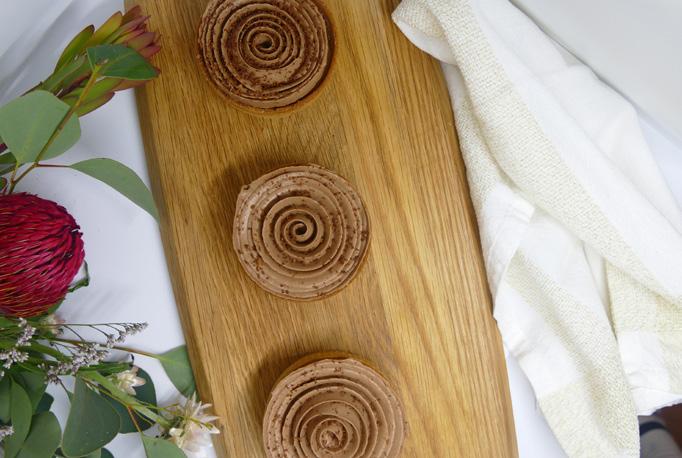
He also backpacked around Germany and The Netherlands, staying in hostels where he met a lot of people and enjoyed tasting vegan food. “After Covid and being closed off for a couple of years I was keen to get away.”
T here was also an earlier organised tour to the US with plans to visit family in London and then on to France and the Mediterranean next year.
He finds travelling alone gives him greater independence. The only challenge he met was communication as some of the accents were very strong and difficult to understand.
A s for advice to anyone with a disability. “I believe anyone regardless, of their disability, will find they are capable of travelling. Not everything is possible, but you would be amazed at what is and it’s good for your mental health.”
I n his spart time Brett works out at his local gym, five times a week. He also like to communicate in Auslan with other who are deaf or hearingimpaired and “I love baking sweet treats to make people happy”.
comfortably, but a lot of barriers still exist.”
According to Jessica it requires an approach from both the top end of town and smaller businesses.
“ We rely on big organisations to invest money into the disability sector because they can set up programs to support people. Equally big business is not for everybody, but this could be an opportunity for more smaller businesses to take on.”
After winning cash and camera equipment from the Canon Grants Program people from all over Australia are now asking how to purchase their products. “Expansion of our business has a direct social impact, as the number of hours of employment we can create for people with disability is directly linked to the size of our organisation and our revenue. A higher customer base means we are engaging more people in conversation about the limitless potential of people with disability. And more sales equals more jobs.”
Since 2014, CROWNability has guided Crown’s understanding of disability, as well as the role the organisation has to play in influencing partners and stakeholders. The program has proven that disability is not a barrier to developing a career at Crown. During the last six years, Crown’s workforce has been enhanced by the skills of people who have had assistance from, and participated in, the CROWNability program.
Paralympic gold medalist, Kurt Fearnley, is disability employment ambassador for the program.
EMPLOYMENT
linkonline.com.au 19
Salted caramel chocolate mousse tart
NOVA Employment puts the Focus on Ability film makers
For more information on employment opportunities go to: www.novaemployment.com.au
To view the Winners of the 2022 Focus On Ability Short Film Festival visit: https://youtu.be/u7-lzW3XRn8
Search the 2400 film catalogue at: www.focusonability/com/au/search
A mong the winners were:
International Documentary
The winners of the Focus on Abilit y Short Film Festival were announced at a red-carpet ceremony in Sydney. This unique film event, that puts the spotlight on people with disability, attracts submissions from around the world.

O pening the awards presentation, ambassador Paula Duncan said the film festival has entered the hearts and minds of people in small villages and remote areas across the world. There were 281 film submissions this year with 50,000 people voting. “Festival founder, Martin Wren has achieved the unachievable, and created the unimaginable,” she said.
A mong the guests was singer Rachael Leahcar who wrote a song about disability Can Do, that she performed for the first time at the awards. Also, Sunshine Coast rap artist MC Wheels wowed the audience when he opened and closed the show.
I n his speech to 370 guests Martin Wren compared disability services to rowing in a wide river, where imperceptibly at first the boat will move faster then go backwards to where it started from, because the current
was against it. “And at times so is the attitude of people towards disability, it ebbs and flows.”
Wren said it was necessary to change the attitude to people with disability to achieve a truly inclusive society.
“I wanted to do more to give people with disability equal opportunities and I chose school students to start me off. Students, particularly those in years 10, 11 and 12 have a great deal of insight and fresh new ideas, so we invited 12 schools to make 12, 5-minute films. They were all exceptional because each of them has ability to move people,” he said.
T he festival has grown exponentially. The SBS will screen a special program in December and films will be shown on the Aurora channel.
“At NOVA Employment we are desperate for more people to come on board. If you have a disability and you want to work, have not worked, lost your job or are looking for a career change we have heaps of vacancies.
We want people who are kind, empathetic and committed to making a difference to people’s lives,” Wren said.
- Zoran Djordjevic - Self-portrait with Marcos Santos International Short Film - Rachel Handler - Andy & Kaliope International Most Votes - Meghanath Kuzhalmannam - Where is my Freedom School Documentary - East Hills Boys High School - Resilience School Short Film - Bonnet Bay Public School - The Marrakesh Treaty School Most Votes - St John Vianney's Primary School - About Me
O pen Documentary - Lenny Seberry
- A Day in the Life of
O pen Short Film - Peter Renzullo
- Note To Self
O pen Most Votes - Satara Uthayakumaran - A Heavenly Piece of Art
NOVA Employment Choice Award
- Nikhia Trask - Rylan's Story - Autism is not a choice.

Prizes included cash, gift vouchers, mentorships and a Toyota car.
T he Focus on Ability Film Festival will be back in 2023, so be sure to start thinking of your film ideas. Full details at www.focusonability.com.au
Link to... Employment
MC Wheels December/January 2023 20

Briar’s talents and abilities recognised by Sydney law firm
to look forward to in my week. I get to use my brain and socialise and feel like I’m contributing.
“ Work has really helped my mental health as well. PW Lawyers look after me very well and naturally, I want to give back with my best performance.”
T he Sydney-based law firm have been partnering with Parineeta Ubhiryane from MatchWorks since 2017 to give people with barriers the opportunity of employment across various business support roles. Inclusive recruitment practices have been inspired by Fillbrook’s lived experience.
“As a child, I had learning difficulties, a speech impediment, and struggled to stick with things,” he said.
Finding an inclusive employer has been life-changing for Briar Thompson.
T he 35-year-old with cerebral palsy had been looking for an accommodating workplace for three years before MatchWorks connected her to co-owner of PW Lawyers, Anthony Fillbrook.
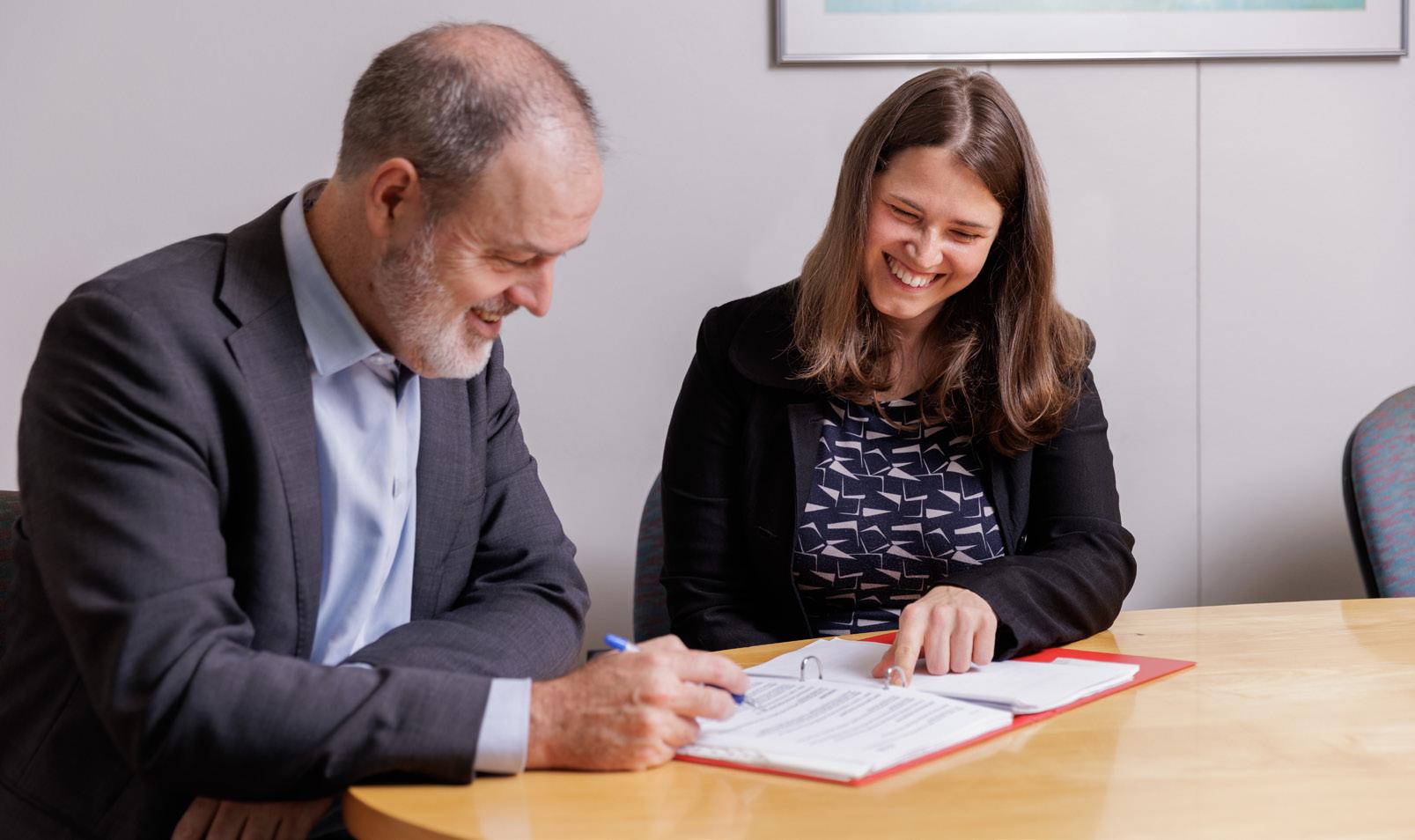
Recognising her talents and abilities, Anthony created a job where Briar could put her skills and qualifications to use and build on her career
“I was apprehensive because I had been to so many interviews where they can’t provide flexibility,” Briar said. “I was amazed when Anthony said it was no problem to attend medical appointments, so my health doesn’t decline. The fact that I had health conditions, physically and mentally seemed not to phase him.
T he firm created a flexible job where she could use her qualifications, which gave her a sense of purpose.
Briar now works eight hours a week over two days as a policy writer at
PW Lawyers. To assist with pain management, MatchWorks arranged Job Access funding for the work equipment she needed to perform at her best.
“ We believe people with barriers should be given an opportunity to use their skills and abilities to the greatest advantage,” Fillbrook said. “We like to build roles that empower people, so they are an important part of the team and have a future.
“Briar looks at challenges from a different perspective. I can see her on a board in five years as she is very capable.”
Briar’s skills and abilities are helping deliver new initiatives for the business. She recently started developing a mental health program which will strengthen the firm’s focus on building a safe and supportive work environment.
“It’s a passion of mine to build an inclusive workplace where people with additional needs can be supported,” Briar said. “I have gained a sense of fulfilment and now have something
Many of the team at PW Lawyers are people who faced barriers to employment.
“I am just trying to do my bit to be inclusive,” Fillbrook said. “As an employer, you have to be patient and meet people at their level. Expectations need to be realistic, and we need to work with their strengths and skills.
“All our employees are valued members of our team. We make no exceptions to our standards, and make sure our team can do the job without excuses. Our clients are our priority.”
Briar’s advice to others in a similar situation is not to give up and regularly do activities that rebuild confidence.
“Don’t think you have nothing to add because you do,” she said. “I wrote blogs, did short research roles and was part of advisory groups and all these experiences gave me transferrable skills. This job has opened up other opportunities in my life too. I now have the confidence to say yes to new things.”
Link to... Employment
December/January 2023 22
Briar Thompson & Anthony Fillbrook
We help you prepare, find and keep a job

1300 13 23 63 matchworks.com.au
Your journey to employment
What’s the difference between accessibility and inclusion?
translator Mandy Doleisi next to him in the chamber as he spoke.
He was told the translator would have to stay in the Parliament House broadcast studio and be projected onto screens in the chamber, remaining off-screen during the live broadcast.
“I understand the difference between Mandy being there in the broadcasting studio and here on the floor of the chamber is the difference between accessibility and inclusion,” Pocock later told SBS News
“Today we have achieved the former but not the latter. In future, I hope we can achieve both. It’s in all our interests to build a more inclusive society that celebrates difference and diversity.”
L ittle said organisations such as CPL - Choice, Passion, Life are leading the way in promoting access and inclusion.
Madeleine Little, director of Undercover Artist Festival, presented by CPL – Choice, Passion, Life’s Access Arts, likened the difference between accessibility and inclusion to the difference between permission and welcome.

“Accessibility is simply saying ‘you can come here’ but inclusion is an enthusiastic welcome. It’s saying: ‘we want you here and you will be safe here’,” Little told Link
“People with disability spend their whole lives problem-solving just to exist in a world that wasn’t built for them. It’s exhausting and can be dehumanising.
"To navigate a world that is built for everyone else feels like daily exclusion
and the only way we can overcome that is by improving accessibility with enthusiastic welcome and inclusion.”
S he admired how Australian artist, performer, and CODA (child of a d/ Deaf adult) Jodee Mundy explained the difference between accessibility and inclusion in her solo autobiographical performance, Personal, in March 2022.
“Imagine being invited to a dinner party,” she said. “Access is walking through the door; inclusion is sitting at the table. And these are two different things.”
W hen ACT independent senator and accessibility and inclusion champion David Pocock gave his maiden speech in Federal Parliament in August 2022, he sought permission to have Auslan
“Its continued advocacy, education and commitment to improving the quality of life and ensuring fair and equitable choices for everyone encourages other organisations to take notice, listen and ultimately, learn and understand.
“I will constantly show up as I am in my personal life as a daughter, sister, friend and professionally as a festival director and contributor in the arts industry, and my disability should not be a defining characteristic of any of those roles. My disability experience is not something I can erase.
“True inclusion is about understanding that and being supportive of everyone’s right to show up and feel and be exactly as they are while honouring their experience of getting there,” she said.
Link to... News
Australians understand the need for accessibility and inclusion and the shared responsibility they must shape in a world where all people can live an equitable and fulfilling life. What needs deeper understanding is identifying the crucial differences between accessibility and inclusion and why both are needed for Australia to become a fair and just society.
December/January 2023 24
Madeleine Little
Looking for a job? Supported Employment could be for you.
If you’re ready to start a new chapter, discover more independence, learn new skills and build lasting work relationships all whilst earning your own money, Aruma, one of Australia’s leading disability service providers can help.
A ruma have eight businesses across New South Wales and Queensland, where its supported employees are gardeners, receptionists, biscuit manufacturers, recyclers, tour guides, cooks and more.
A ruma never use a one-size-fits-all approach and many of its supported employees go on to upskill and move around its businesses. Aruma can also help you find a job in open employment down the track.
T heir businesses include commercial
laundry, manufacturing, medical packs and forensic supplies, facility services, packaging, Summerland Farm and Aussie Biscuits.
“
I’ve worked for Aruma for over 10 years. I have done therapeutics, laundry, dispatch and it’s been absolutely great from the start,” said Supported Employee Glenn, who works in the commercial laundry.
No matter what your experience levels are, Aruma can support you on your employment journey. We train you on the job and at your own pace.
W ho are we?
Welcome to Aruma!
Yes, we are a disability service provider. But we are so much more, we are the
helper, mentor and coach. And the trusted partner of around 5000 people with a disability throughout the east coast of Australia.

A ruma is here for the new age, the new world of disability support, the NDIS world.
We never use a one-size-fits-all approach. You know how to live your best life and Aruma are here to support you to do just that.
O ur focus is always fully on you. You. First.
Ready to learn more?
Reach out to the Aruma team to discover our current job vacancies on: 1300 538 746 or enquiries@aruma.com.au
EMPLOYMENT linkonline.com.au 25
A career where you can make a difference
Robert Duff-Silsby
Naturally, when people think about assistive technology (AT) they think about the products. But who is behind those life-changing inventions and innovations? It takes an industry full of highly dedicated professionals using their expertise to empower people to live their fullest life.
We asked four of those professionals how they got started in the AT industry. And we wanted to know what advice they had for anyone looking for a rewarding career.

People come from anywhere and everywhere to work in AT
W hen Robert Duff-Silsby worked in construction before coming into
AT. “I didn’t want to be a concrete operator forever, so taught myself marketing through free online courses and practicing on my own projects,” he said. “That opened the door to interning in disability healthcare.”
T his internship led to where Duff-Silsby is today, as a web developer and growth marketer for Ascend Health Group. “Assistive technology is perfect for people who think outside the box,” he said. “It’s also for people who want to make an impact. You don’t need to follow a traditional path into the industry. What you need is a passion for helping people.”
Tony Kol didn’t come straight into AT either. Kol was a cleaning estimator,
but when a job in AT presented itself, he saw an opportunity to help people with disability.
“I’ve fixed stuff my whole life. My kids call me Mr Fix-it,” he said, now a service coordinator at Motion Specialties. “Our sales team makes recommendations or suggests modifications. Then I go out to the customer to make sure everything works and that they’re happy and
Link to... ATSA
“It’s an industry that requires a lot of care, compassion and empathy ”
December/January 2023 26
comfortable. I love my job. I love the industry. I only wish I found it earlier.”
Pearl Chan graduated from the National University of Singapore in 2002 with an IT degree. "Everyone in my family expected me to be a database guru as I was good at it." However, Chan chose a different path in marketing.

Today, she is the marketing and communication manager of UniCare Health. "What I'm doing now is completely off-tangent. But I love working in AT because it allows me to do marketing differently. I like the challenge of thinking out of the box to find unique ways to share new research, products and technology with the industry."
Essential qualities for success in AT
T he professionals we spoke to agreed there are certain qualities you need in AT, regardless of your background.
“It’s an industry that requires a lot of care, compassion and empathy. Having those values is important in this industry,” Chan said.
David Vosnacos, program manager for assistive technology and low vision services at VisAbility, said those values need to come through in your people skills. “You can talk about all the technology in the world, but you won’t get the right solution if you don’t get to know an individual, so you understand their needs. The technology is just the tool. The goal is enabling an individual to achieve their personal goals.”
A n industry with incredible and rewarding opportunities
AT is an industry that will only grow. That means there will be greater opportunities for people to forge a rewarding career from making a real difference in people’s lives.
Every year, significant advances are made in AT. This said the professionals we spoke to, is a particularly exciting part of their work. It means there is more and more they can do for clients, opening incredible possibilities for
what people can do with their AT.
“Seeing how new technology is going to enable clients to do something they’ve never been able to do is just awesome,” According to Tony Kol.
Pearl Chan agrees. “We have beautiful power chairs and scooters, reclining chairs with more functionality than a La-Z-Boy chair. And there are so many new things we can do to vehicles and to wheelchairs and people want AT that looks less clinical. Even tray walkers and seat walkers have become so creative and funky,” she said.


David Vosnacos wants people to know that you don’t need to be technologically gifted to work in the industry. “Don’t be frightened by the technology. The technology is there to assist you achieve a particular aim for your client,” he said.
“ With the pace of change today, there are always things on the horizon that will just blow your socks off. And working in AT you get to be there to see what they make possible for people.”
If you are excited by the intersection of technology and human potential, could AT be the industry for you?
“It’s such a vibrant industry. There’s just so much innovation and new research,” Chan said.
Many ATSA members offer training sessions and education.
If you are interested in a career in AT and don’t know where to start, contact ATSA at: info@atsa.org.au
ATSA
Pearl Chan
David Vosnacos
linkonline.com.au 27
Tony Kol
The road to safety
When Alexander Jannink decided to form his own company, his objectives were clear: prevent road fatalities and injuries, and in the process, assist those impacted by road trauma and disability.
could end in tragedy. “It’s not unusual to see images of drivers not wearing a seatbelt and using their mobile phone. But I know what it’s like to have your life ruined and I want to help to stop that happening to someone else.”
Jessica Gao, who joined Acusensus NSW mobile phone infringement assessment team two years ago, is similarly motivated. The 33-year-old became a paraplegic after falling from a balcony in 2014 and is keen to use her experiences of living with a disability and her work with Acusensus to raise awareness of the potentially “devastating consequences” of risky road behaviours.

Jannink established Acusensus, a road safety smart-camera technology, in 2018 after the death of a friend, killed by a driver likely using their mobile phone. Acusensus is the world’s leading AIassisted road camera developer, with world-first programs operating in NSW, Queensland and WA, using camera technology that can simultaneously and autonomously detect speeding, mobile phone use, seatbelt compliance, vehicle registration, illegal lane use and vehicles of interest to police. Information from the collected data goes to the relevant enforcement authority in the state.
Central to the company’s success are its image review teams, who analyse images captured by the AI-software to determine if an infringement has occurred. Acusensus partners with Spinal Cord Injuries Australia (SCIA) to staff its review teams, comprising people with a spinal cord injury,
including those who have acquired their injury as a result of road trauma.
Team member Matt has worked with Acusensus Queensland infringement assessment team since December 2021. The 32-year-old knows only too well the potential consequences of road trauma after a motorbike accident in 2018 left him paralysed from the chest down, requiring a six-month recovery in hospital and rehabilitation. Matt assesses camera images captured as part of Acusensus Queensland seatbelt and mobile phone infringement program.
“The most enjoyable part of the job is knowing you are potentially saving lives, preventing someone being put into a chair like me. It’s easy to ruin someone’s life forever,” he said.
T he former painter and decorator said it was important to raise awareness of how dangerous road behaviours
“I like my job and helping to keep people safe,” Gao said. “I think it’s a good program in preventing car accidents and injuries. I know some people don’t recognise that and say it’s just about fining people for revenue, but it is about the risk distracted drivers pose to other people on the road, as well as their own family members in the car.”
Partnerships with a purpose
A pproximately 16 per cent of Acusensus’s workforce has a disability. In addition to Spinal Cord Injuries Australia (SCIA), the company has partnered with NSW Police Legacy to employ former police officers who have suffered post-traumatic stress disorder.
"Engaging with the disability sector and advocacy organisations is a natural extension and reflection of our company’s social impact mission,” Jannink said.
“Our partnership with SCIA’s recruitment service has provided us with outstanding team members who have excelled in their roles. Through their life experiences they have strengthened the diversity of our workforce and our competitive advantage,” he said.
Link to... Employment
December/January 2023 28
Jessica Gao
Finding independence in a new community

Meet Andrew, who recently moved into an Endeavour Foundation Supported Independent Living home.
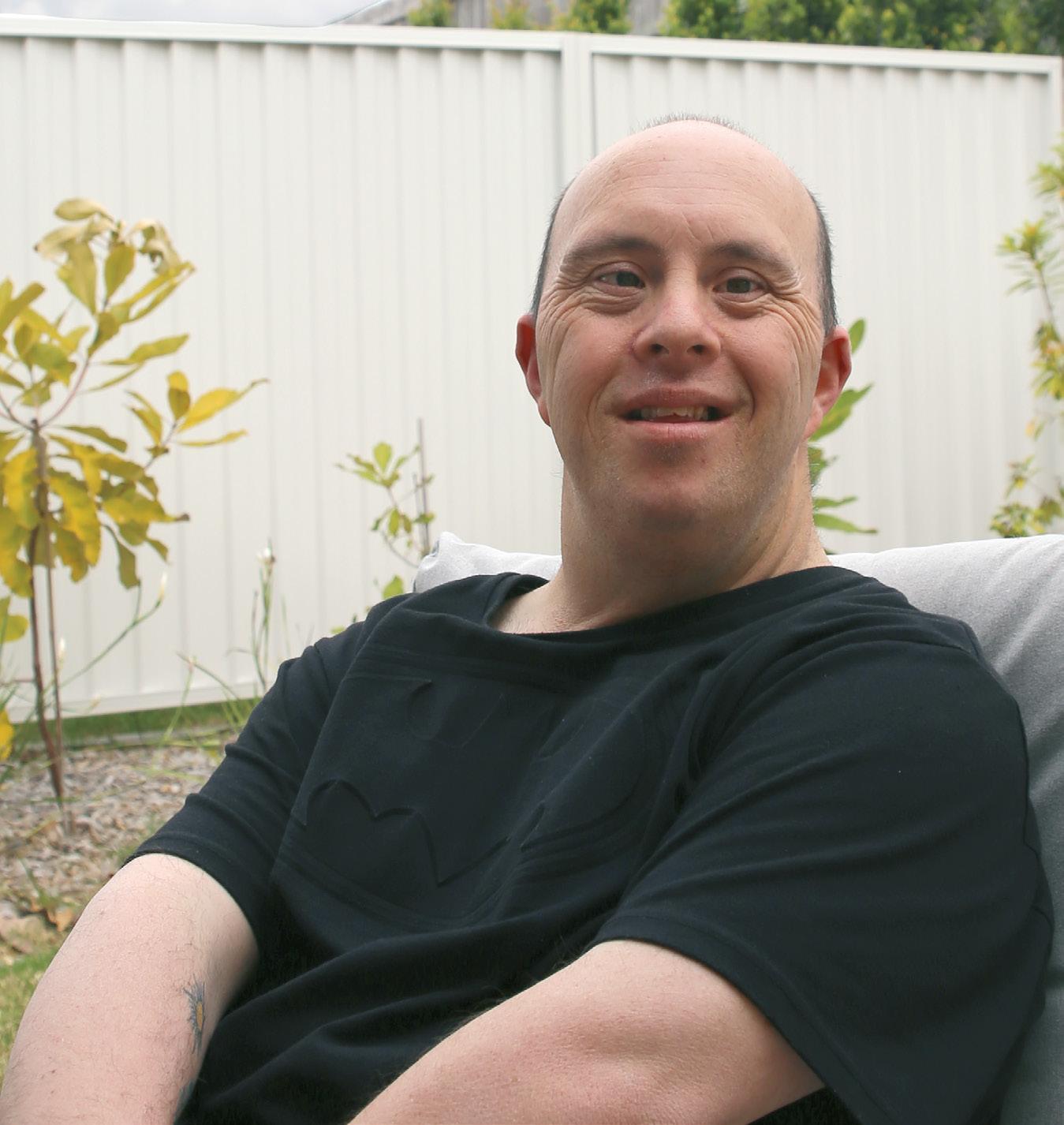
Andrew has settled in well into his new home. “I’ve got the best housemates. We have a good life, and great support,” he said.
A ndrew has quickly established himself at home within his local community of Ipswich near Brisbane and developed a network of friends and support.
A s a social person, Andrew likes to be out and about in the community, and his home is in a great location, with easy access to transport, amenities, local shops and facilities.
“Ipswich is close to everything, like transport, people and friends.
"One of the best places is the Sunday markets with fresh fruit and vegetables and I catch the bus there.
"And the library too because they have comic books and Batman is my favourite superhero character.”
A ndrew spends his weekdays smashing out his goals at the Learning and Lifestyle Hub.
“I go to Endeavour Monday to Friday, and I have a lovely time with my friends,” he said.
I nspired by a trip to Bunnings, he recently turned his hand to gardening, making a vegetable garden in the backyard.
Live life your way with Endeavour Foundation
Just like Andrew, you too can follow your passions and dreams in life with support when you need it. Endeavour Foundation is a NDIS registered service provider supporting people with disability to live, learn, work and flourish.
Call us today on 1800 112 112 or visit endeavour.com.au to find out more. EF3233.LM.1022
“I’m growing cauliflower, snow peas, onions, tomatoes and broccoli and some herbs.”
A ndrew has settled into a relaxed environment with housemates that have become friends sharing regular chores of cooking, washing and cleaning.
“I like my life. I have my own space, my own TV, and nice posters in my room. I have a great life with my friends,” he said.
“Endeavour is awesome, and Ipswich is best and awesome.”
E xplore brand new, move-in ready homes across Ipswich: visit www.endeavour.com.au
EMPLOYMENT
linkonline.com.au 29
Telstra’s Accessibility and Inclusion Action Plan
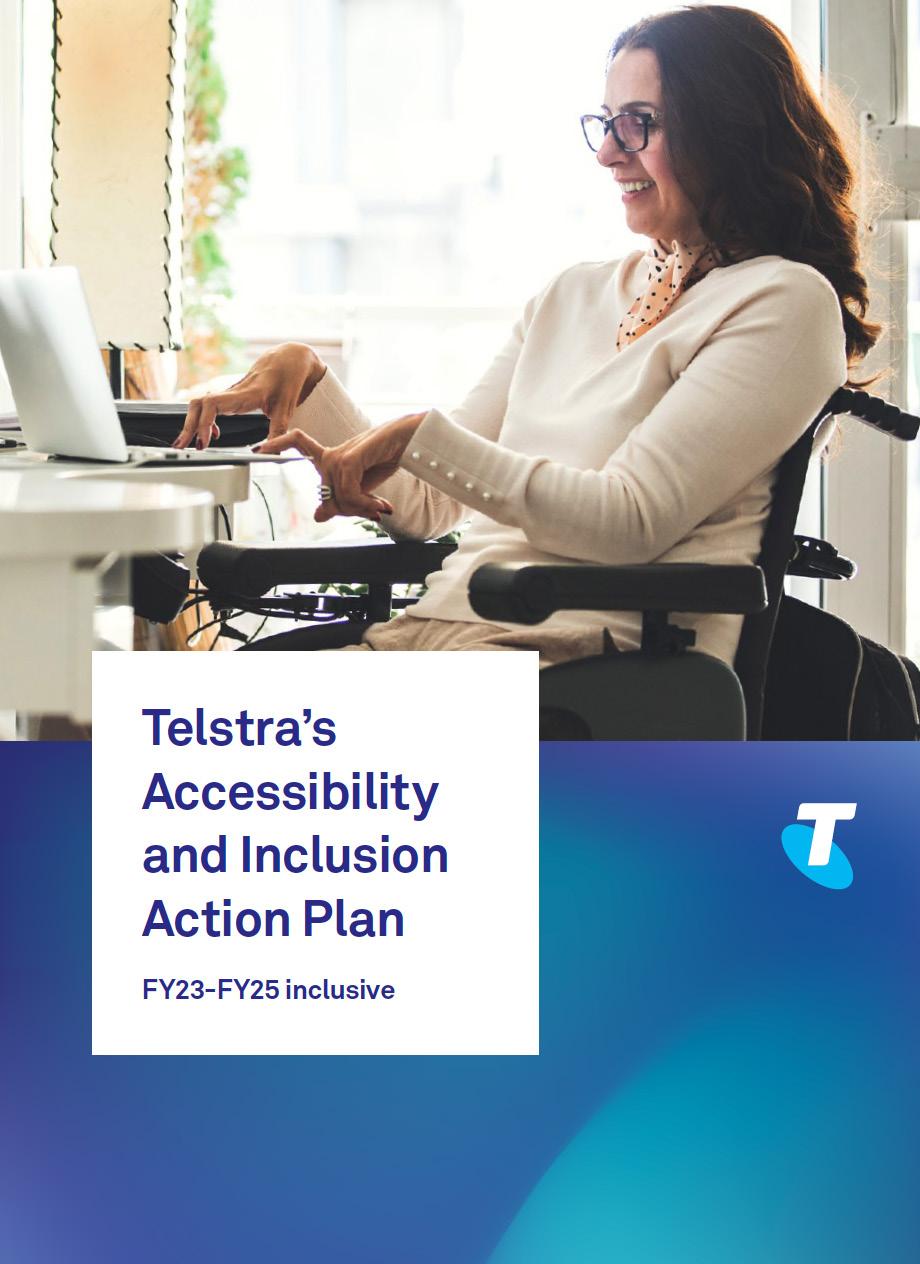
Creating a more inclusive workplace.
In today’s world, digital technologies play a central and empowering role. Being connected is not just an added extra, but an increasingly integral part of our daily lives. While the digital economy is generating social, cultural, and economic benefits for many Australians, we know these benefits are not always equally shared with those in the disability community.
O ur recently launched Accessibility and Inclusion Action Plan is part of our commitment to address that critical issue. It details our plan to build inclusion and accessibility in our organisation to overcome barriers that prevent full social and economic participation for people with disability. It is focused around three foundational pillars: our employees, our products and services, and our customers.
People with disability are twice as likely to be unemployed (10 per cent) than those without (4.6 per cent). This disability employment gap hasn’t changed in decades, with discrimination and prejudice toward people with disability continuing to exist throughout the employment lifecycle.
We are doing our part to address the national disability employment gap. We have endorsed the government Employ My Ability strategy and put a series of actions in our plan to recruit and retain talented people with disability.
We have committed to:
Increase our representation of Telstra’s graduate cohort to include people who identify as living with disability from 10 per cent to 12 per cent by commencement in 2025.
Accelerate people living with disability through the recruitment process by progressing 100 per cent of all shortlisted candidates who disclose a disability to an interview with the hiring manager.
Advertise job vacancies effectively, to reach each candidate with disability by partnering with Get Skilled Access’s “The Field” platform.
Retain our Disability Confident Recruiter status through the Australian Network on Disability.
Gather richer data in relation to representation of people with disability across the employment lifecycle and monitoring employee experience using our employee surveying platforms.
We will also continue doing right by our customers, and ensure our products and services are accessible for all. We are committed to: Provide a seamless inclusive customer experience for customers with accessibility needs.
Enhance frontline team member capability to improve our ability to serve customers with disability.
Support people with disability to connect and live independently with accessible telecommunications and assistive technology.
Ensure our core assets are accessible so our customers can engage and thrive in our digital experiences.
T he full suite of our commitments can be read in our Accessibility and Inclusion Action Plan here. bit.ly/telstra-disability
Link to... Employment
December/January 2023 30
Making a successful transition from school to work
Te enagers with disabilities and their families may be wondering what the future holds as they approach the end of their schooling.
Barkuma’s Transition Program is an independent program to assist final-year students to make a smooth transition from school to future pathways. Students participate one day per week over 12 months, undertaking structured learning, skill development, accredited training and work placement opportunities.
Op erations manager for the Transition Program, Rebecca Steppat said, “We want people with disabilities to have choice and control over their employment pathways, and the Transition Program is one option for helping young people achieve that.”
After graduation, students are supported to transition to an
employment pathway of their choice. This could either be School Leaver Employment Supports (SLES) or Disability Employment Services (DES), where they are provided with assistance beyond school to prepare for and seek employment.
Former Transition Program student Ben Hondow made the successful leap from schooling to employment. Ben’s experience with the program saw him move into a volunteer role at a local charity store. It was there that he discovered his true passion; “I realised that I have the skills to help older people.” With the support of his key worker, Ben undertook an aged care traineeship through DES. He now works five days a week and loves his job. “I couldn't really ask for a better work team. The staff are from different cultures, so it is amazing to know and learn about different cultures.”
Barkuma’s Transition Program is open to school students who have a developmental disability, are 16 years or older, have the capacity and desire to work in open employment in the future, and are willing to access transport independently.
E xpressions of interest are open now, contact the Transition Program Team on: 8414 7100 or visit barkuma.com.au

For South Australians with developmental disabilities who want to create their own future, Barkuma provides long term support, connection and belonging.
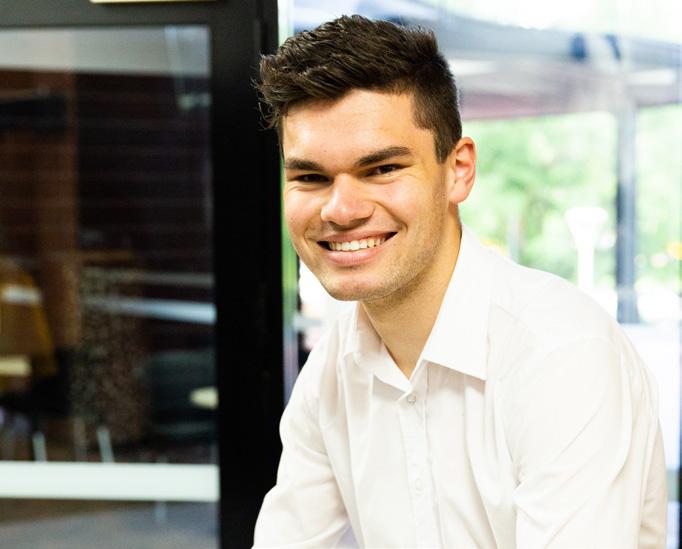
• Transition from School Program (Year 12)

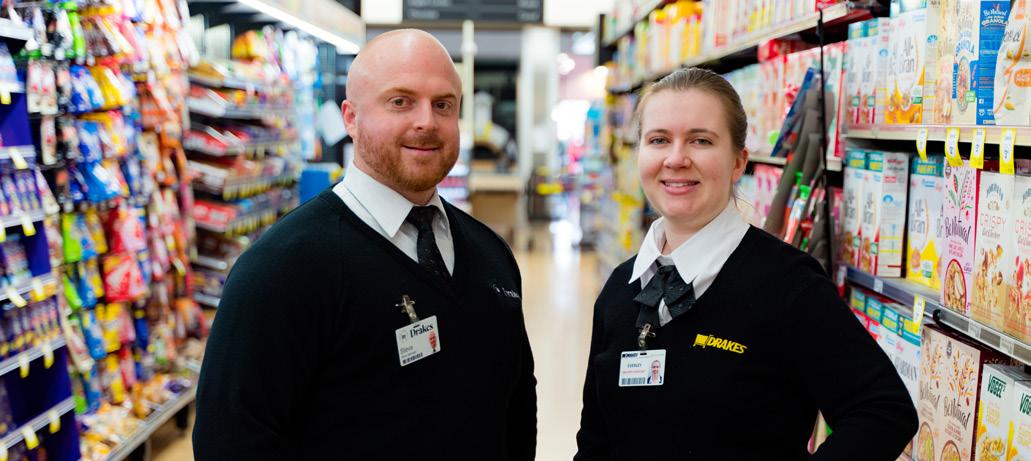
• School Leaver Employment Supports (SLES)
• Supported Employment through our Commercial Services
• Disability Employment Service (DES)
8414 7100 barkuma@barkuma.com.au Barkuma.com.au

YOUR
WITH
EXPLORE
WORK POTENTIAL Scan here
EMPLOYMENT SUPPORTS
EMPLOYMENT
linkonline.com.au 31
Ben Hondow
Meet hospitality graduate Shay Bell
encompass concierge, front office, food and beverage, housekeeping and administration.
“Interns receive the full range of what the hotel industry is like. This is the hotel world on a grand scale. It’s onthe-job training because what you learn in the classroom does not reflect the real world,” she said.
Since August 22-year-old Shay who has autism, has been working two days a week at the hotel, welcoming guests as they arrive, helping with their luggage, and arranging services such as booking taxis.
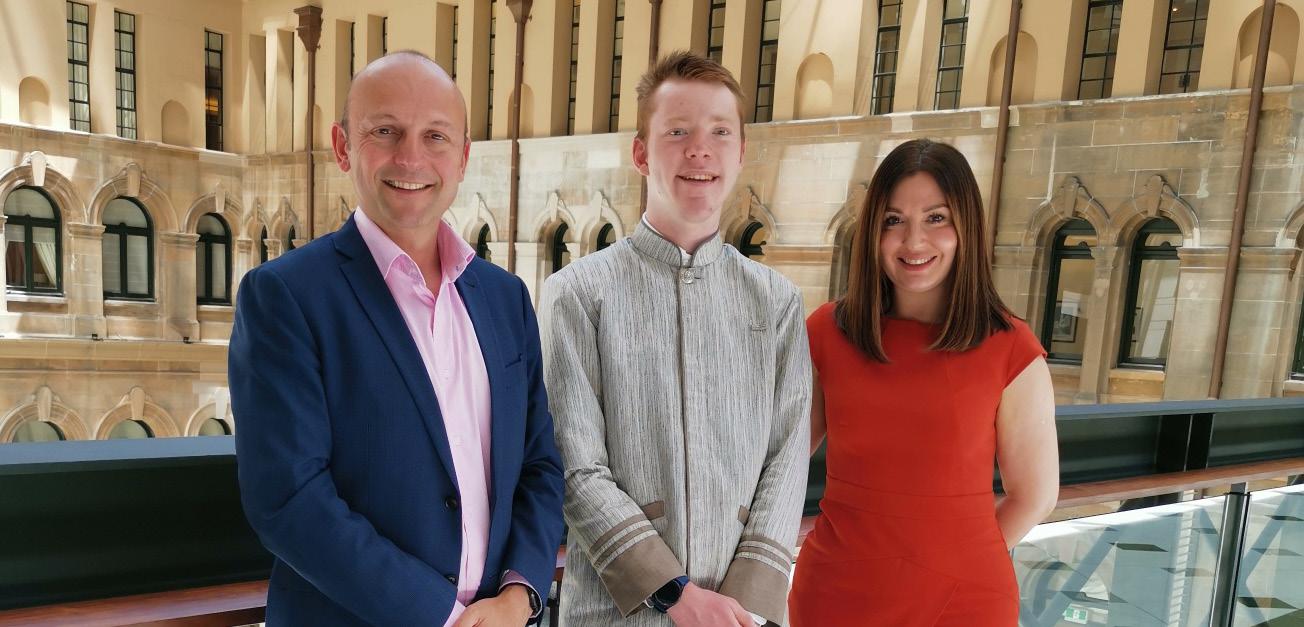
“I recognised at once that Shay was a people person and noticed people high-five him in the lobby. We need people like Shay,” Stainton said.
S hay works Tuesday and Wednesday at the Fullerton and three days at the Hotel Etico. He started the 12 months Hotel Etico training program in May where students get work experience in the last three months of the course, but Shay found a job at the Fullerton early. (See following story).
W hat he likes most about working at the Fullerton was the environment which he described as “comfortable and it’s a paid job and I like making money!”
H e told Link he was confident in his role had not encountered any difficulties with people. After further thought he said he has yet to meet anyone “who is not nice”. Also adding that if he was unsure about doing
something he did not hesitate to get help from team members.
W hen pressed he admitted to challenges, particularly one aspect of the training program where he found listening to some audio sessions difficult. “I prefer to have someone explain things to me.”
A nd he has some advice for others like himself and that was to try different jobs until you find the right one. “But you have to enjoy what you do.” He recalled his first job in hospitality working in linen services that he did not like and left shortly afterwards.
According to Stainton working in the hotel industry offers a lot of opportunities and she reckons Shay has the potential to be a general manager if he wanted it. “He is a breath of fresh air for us.”
S hay responded to this with a grin and while not sure that becoming general manager was on his radar, said he was looking forward to ultimately working in the bar and starting a barista course.
At the Fullerton interns get a year’s training in three departments that
A s well as loving what he does, Shay is a passionate football fan and supporter of the premier AFL team in the country, the Penrith Panthers, and one of the lucky ones to attend the finals in Sydney recently. He has also participated in the Special Olympics in swimming and dancing, with one of his sisters teaching him to dance.
According to Stainton, one of the reasons why Shay was chosen was his obvious keenness and determination that was evident from the first interview.
“
In the interview you are selling yourself and Shay was very good at selling himself and we are in the business of selling to people. I was impressed not just by his age but the fact he had not worked in a hotel like this before. He knew how to close an interview and at the end asked if he had the job. A lot of people don’t have the confidence to do this.”
A recent Forbes audit also delivered feedback with Shay described as "very engaging, always smiling along with positive comments on Trip Advisor reviews."
A new software training program is about to be launched at the Fullerton, called Humanforce it has been designed to improve workforce operations. Shay has been selected to be one of the so called ‘champions’ from the concierge team to be part of the program.
Link to... Employment
Shay Bell recently graduated from a hospitality program run by the Hotel Etico. He spoke to Kymberly Martin at the Fullerton Hotel, Sydney where he works as a porter on the concierge team. Also present at the interview was Fullerton Human Resources director, Stephanie Stainton.
December/January 2023 32
Hotel Etico Andrea Comastri, Shay Bell & Stephanie Stainton
A unique training program at this Blue Mountains hotel
“Our on-the-job training program is quite unique in some respects. We pay full award wages, which is not common and what I would describe as this magic combination of work and independent living at the same time,” Hotel Etico CEO and co-founder, Andrea Comastri said.
“Trainees achieve a special level of learning to give them technical skills and confidence. Their work becomes a way of achieving a life that is dignified, fulfilling and is not just about a job, but a career,” he told Link
Trainees undergo training for 12 months, live on site and are paid to do the work. Their work program involves three months in reception, guest services and housekeeping, three months in the kitchen and three months on the restaurant floor and bar.
Families and carers are an important part of the program “it is about training them to accept there is an independent element to their children’s lives”.
Most of the trainees lived with their parents or carers. “This will be the first time they have been away so there is a bit of a journey they go through too and we establish a communication protocol from the start.”
T here are now 12 trainees on site, double from the original six. They are four months into their 12-month stint. After graduating they are supported for another year to help them secure a job and follow their new employment pathway.
A ll the original six trainees have found employment in hospitality. Five are working in large hotels, Another, works in a suburban bakery because he likes to cook and preferred to work in a small business. In addition, one of the current trainees, is Shay Bell, who has already started working at The Fullerton in Sydney.

Addressing the employment conundrum
According to Comastri the employment landscape for people is changing with a
lot of conversations on the back of the Royal Commission around disability.
“I think there is a shift from the old, traditional model to more open employment. Paying award wages is the way it should be. There are so many opportunities for people with disability, they should be allowed and encouraged to think about careers, not just jobs. Some innovative thinking is needed but we have started to knock down barriers and not accept the status quo, but it takes passion, hard work and skills.
“ We don’t want to be the traditional style charity that lives off donations and grants but want the majority of our income to rely on commercial revenue. Neither do we want guest s to stay at Hotel Etico because it’s a disability service provider. We want them to come because we are a good hotel. The beds are comfortable, the food is nice, the coffee is good, the atmosphere and service are great. On top of that we do something worthwhile. It’s a win, win situation.”
T he business operates as a registered charity, with most revenue from the hotel accommodation, restaurant and bar and a NDIS funding component to support the trainees.
T he training is based on an Italian model that the Etico group started in Northern Italy and is now expanding into other European countries. Hotel Etico adopted this program in Australia for people with disability in 2018.
E xpansion plans are on the cards with a mission to have a hotel in every state and territory. Most likely Canberra will be next, with interest coming from other states also.
O vercoming the legal issues
For Etico, two heavily regulated environments coming together can make issues relating to Health & Safety and the NDIS, in addition to employment, privacy, contract and conveyancing laws, complicated.
“ Without the pro-bono support we receive from lawyers like MinterEllison and Baker McKenzie we would not be able to do what we do. A key
element in all of this is not just about employing and training people, but also partnering with industry like hotel groups and legal firms.”
A s well as the Fullerton and Fairmont, Etico works with Sofitel and Mercure hotels, that are keen to tap into an industry where there is huge gap in the sector for staff. “People with disability are dedicated, interested and want to learn and it makes good business sense to have a diverse workforce.”
He acknowledged there is a general apprehension from employers not used to employing people with disability for a number of reasons, like Health & Safety risks, saying or doing the wrong thing, but taking all this on board starts from the top.
“In the Fullerton’s case the general manager is dedicated to creating an inclusive employment environment and it trickles down from there.”
W hile the government is moving in the right direction when it comes to disability employment, he believes more can be achieved. Hotel Etico and Crown Resorts were invited to speak at the Jobs and Skills Summit in Canberra in September. From this a Visitor Economy Disability Program was established to help people with disability secure jobs in tourism. Locally based ‘navigators’ will support small and medium tourism businesses place people with disability into jobs. The 12-month trial will be rolled out in regional areas.
“The government needs to make it easy for employers so there are no excuses. The industry must meet its obligations and be open to having a conversation. There are benefits on all sides… employers get a great employee who works and pays taxes.”
Hotel Etica trainees on deck
EMPLOYMENT
linkonline.com.au 33
There’s an app for that: PQ-365
In September Pride Mobility and Quantum Rehab launched the Australian version of PQ-365.
It’s a one-stop app for wherever you go, whenever you need it and includes everything Pride and Quantum-related, designed for providers.

The free, easy-to-use app helps busy professionals stay up-todate with the latest information from Pride and Quantum and access all relevant content in one quick and convenient place. The app has many cool features, including, serial and order number search, order delivery status, invoice number look-up, a voice search function, an image share option, technical support, marketing material and educational resources.
T he PQ-365 app which is extremely beneficial to individuals located in more isolated regions of the world Pride Australia managing director, Warren Tripp said. “PQ-365 will be a game changer for our Australian customers, particularly those in remote outback areas, giving them live, in-hand access to all resources.”
Additional features include a quick-
search option, 360-degree product views, push notifications, news, events, specifications sheets, brochures, owner’s manuals, basic operating instructions and more. After an initial tutorial option upon opening the app for the first time, the user is required to select a county to view the countryspecific content. Additionally, passwordprotected installation instructions and technical videos are available. Providers and clinicians can also directly access the Pride Learning Management System via the app for online courses.
“ We want PQ-365 to be a major resource for both Pride and Quantum, from order status to technical service videos,” operations director Justin Herbert said. “While it is simple and user-friendly, the app meets today’s technological demands while providing a great user experience. Our goal is to continuously improve the app
to meet the needs of our providers,” he said.
“Having an app is yet another way for our providers to undergo immersive brand experiences. From a sales representative wanting to show the consumer product colour options, to a provider who wants to refer to their order status on a mobile phone, PQ-365 is a onestop resource that can be used by all mobility product professionals,” sales and marketing director Matthew Herbert said.
PQ-365 is available now for download via the Apple Store and Google Play.
Click here to check out a video of the new app. Those who already have the original version of the app installed will receive an app update to download the new version.
Link to... Mobility
December/January 2023 34








How well does your wheelchair travel?
is put in the too hard basket. Linds Rehabilitation Equipment, otherwise known as The Wheelchair People, may have the answer many wheelchair users are looking for.
Be ready for take-off with TakeApart
L inds is proud to announce the latest upgrade to its PDG Fuze tilt-in-space wheelchair line-up. Take-Apart is an optional frame upgrade that allows the wheelchair to be taken apart for easy transportation or storage. Disassembly and reassembly takes seconds and is completely tool-free.

T his feature reduces the weight of the heaviest piece of the wheelchair to 13kg or less. Independent power wheelchair users can consider adding power assist wheels to this manual option, providing a transportable, powered tilting option with total weight under 100kgs. The Fuze Take-Apart is perfect for transporting in the boot of a car or SUV, increasing holiday destination accessibility. This take-apart tilt system puts travelling in an airplane back on the travel itinerary.
People who use a wheelchair for their daily mobility will need to consider how the wheelchair is transported in a car to support their community access. Travelling on an airplane can be even more complicated. Each airline has their own allowances and restrictions on mobility devices; what can be taken in the main cabin, what can be stowed in the hull and limits on size and weight, all adds up to months of planning for wheelchair users and their carers.
A wheelchair prescribed and set up to accommodate everyday tasks may be heavier, longer and wider than the airline allows and may not fit in a vehicle once you touch down to begin your holiday. For wheelchair users who rely on tilt-in-space and other features, transportation of their manual or powered mobility devices can restrict spontaneous day-to-day activities and put limitations on travelling further afield. There are often features that can’t be compromised, therefore travel
T he Fuze T50 range has a sleek aluminium frame with an infinitely adjustable tilt range of 50 degrees. Chairs are lightweight, have a small footprint and are easy to set up and adjust. Add on features of power tilt, manual recline, and manual elevating legs makes the T50 a product that provides adjustability in seating for function and comfort while out exploring the world.
T he Take-Apart frame is now available as an optional chair upgrade on the Fuze T50, Fuze T50n and Fuze JR. It started shipping in early November.
Contact Linds Rehab on: 1800 501 601 to find your nearest supplier of the PDG tilt-in-space range.
Link to... Mobility
December/January 2023 36
Travelling in a wheelchair: local, interstate or overseas?


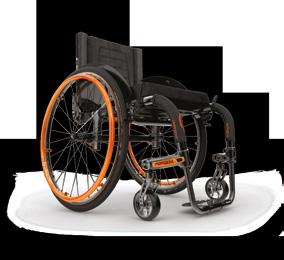




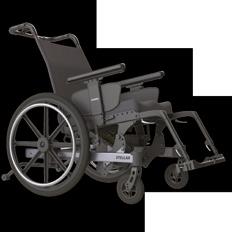
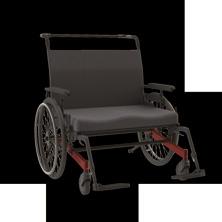


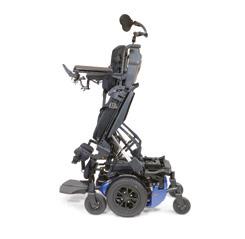









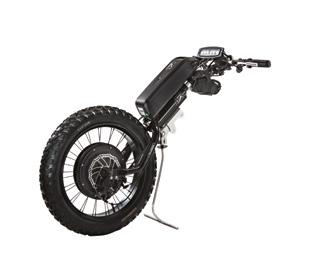
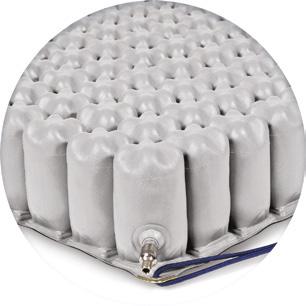
linkonline.com.au 37 www.lindsrehab.com.au
Global innovation showcase at Rehacare 2022
Jaw-dropping new technology that could revolutionise the lives of assistive equipment users was demonstrated at a recent trade fair in Europe, and an Australian company was there to witness it.
Mobility complies with Australian standards, and where necessary has been listed with the Therapeutic Goods Administration (TGA). “We are there for the safety of our client and only partner with businesses that share our values, such as safety before profits.
“ We also anticipate the demand for certain pieces of equipment and pre-order so we can give people the equipment they need, much faster.
ASegway-style wheelchair which turns as you lean, a stairclimbing wheelchair that uses computerised balancing and a robotic exoskeleton that enables paralysed people to walk, were some of the prototypes on show.
A PEX Mobility managing director Steve Joyce said these technologies were showcased at REHACARE, the international rehabilitation and care trade fair at Dusseldorf in September.

“APEX Mobility was invited to attend Rehacare by a number of manufacturers, as they value our distribution that we do for them in Australia and New Zealand,” Joyce said. “This event enabled us to meet about 15 manufacturers over the week. They bring their latest designs and innovations to the event and some of them are not released yet. One company had a locked room on their stand, and invited us into this, to get our feedback on their new design prototypes. This gave us a chance
to influence the design, based on our knowledge of our local market, and the needs and goals of clients in this region”.
J oyce said the amazing range of equipment at the trade fair highlighted the danger individual users could put themselves in when buying equipment off the internet.
“There’s a lot of equipment out there that doesn’t meet Australian safety or consumer standards. These wouldn’t be safe, and you could not re-sell them here.”
He said another reason to buy through reputable rehabilitation stores, such as APEX Mobility approved resellers, was that customers are kept up to date if there are any product safety recalls, and receive prompt and appropriate service if equipment needs repair or adjustment.
A ll equipment supplied by APEX
“Apex Mobility do a lot of research on new products, overseen by our director and head of R&D, Wes Roach, to ensure we sell equipment that is safe and affordable. Wes and his team have been evaluating assistive technology since 1981 and have accumulated a wealth of experience. Our goal is to locate and evaluate new equipment and bring the right equipment to this market.”
S ome of the cutting-edge equipment on show at Rehacare 2022 is now on its way to Australia.
“ We have a container of two new types of strollers for children with special needs on its way from Italy, and new trike designs from Rifton and Schuchmann. We know they would be suitable for clients here and are of the right quality and price.”
O ther products have been sent to Australia for evaluation and are currently going through an intensive range of usability, quality, comfort, safety and endurance testing.
T he APEX Mobility team have been supplying AT equipment to the Australian market for over 70 years, with a distribution network across Australia and New Zealand, and a head office in Sydney.
Link to... Mobility
December/January 2023 38
HAVE THE NERVE WE
Listen
 Funded by the Australian Government Department of Social Services.
Funded by the Australian Government Department of Social Services.
DO YOU?
to talk about disability. to Have the Nerve wherever you get your podcasts
Live an active life with WHILL power chairs
Aidacare are the exclusive distributors of WHILL, which focuses on innovative design and s tate-of-the-art technology, allowing you to express your confidence, style, and independence, empowering you to be you. With WHILL live a life without boundaries, these products are built to challenge the perception of what mobility devices can be.

Connect your smartphone and use the WHILL app to check essential device information, check s ettings or remotely operate the chair's movements. Stay engaged in activities and embrace your s urroundings, knowing the WHILL will keep you safe whilst you ride with peace of mind. D rive in style, choose from eight different arm colour options for Model C2 and five different arm colour options for Model F to match your style. You can purchase a smart key, cane holder or lap belt for more convenience and personalisation.
WHILL Model C2
T he WHILL Model C2 is a revolutionary
approach to power mobility, evoking an active, can-do lifestyle. Its premium performance and superior engineering provide versatility and reliability to experience all-day adventures.
Simple to operate and can make tight turns with a 45 per cent tighter turning radius than tiller-operated mobility devices to get you wherever you need to go. Whether you’re driving around town or manoeuvring indoors. It effortlessly climbs over obstacles up to 5cm in height with two powerful motors, and large front patented Omni wheels. The rear wheel suspension absorbs the impact when driving over bumpy roads or obstacles, and an antisway system keeps you driving straight on side s lopes. The electromagnetic brakes provide safe stopping, even on inclines.
T he Model C2 can be disassembled for easy transportation in the boot of any car. Whether shopping o n the weekend or travelling with your family, the Model C2 allows you to live life to the fullest.
View configuration video: https://youtu.be/-6IxGqvlqI8.
WHILL Model F
Lightweight, foldable, and manoeuvrable the WHILL Model F allows you to explore your world with greater mobility and independence. A compact solution weighing only 24kg (without battery) it can be easily transported on buses, trains and in car boots. When not in use, the Model F can be conveniently stored in a closet or out-of-the-way in the corner of the room. Seating width can also be increased by 50mm, simply by swapping controls from one side to the other.
W hat are the differences between the Model C2 and Model F?
T he C2 is a pull-apart power chair, whilst the F is a folding chair. The Model F retains a lot of the same styling and technology as the C2 with the exception of the patented front Omni wheels, which are only available on the C2. To know more about the WHILL, visit: www.aidacare.com.au
Link to... Mobility
December/January 2023 40

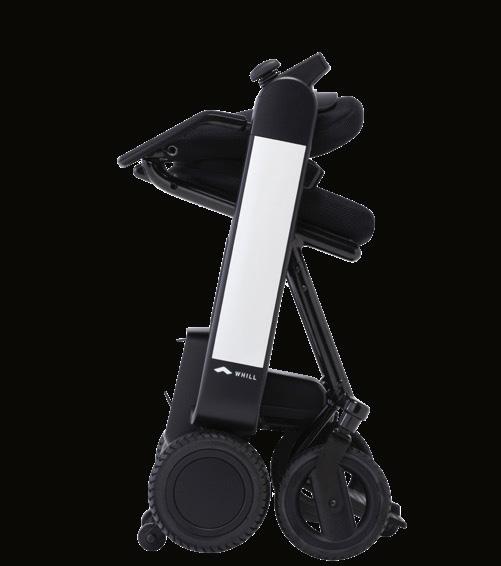


WHILL F WHILL C2 To view our Link EXCLUSIVE offer scan the QR code and SAVE UP TO $300 WHILL allows you to live the life you aspire to with its impressive power, smart technology, and superior handling.
Showing skateboarding skills to people with disability
potential of adaptive skating after sustaining a mild traumatic brain injury in 2018, which impacted his balance and motor coordination.
“The wheelchair skills I learned allow me to go up and down stairs, over rough terrain, steep slopes, and all sorts of places you don't think a wheelchair can go. I improved my balance and bilateral coordination by doing exercises such as standing on a skateboard on the carpet with my crutches and working up to standing on a board and propelling with crutches, something I couldn't do pre-injury.”
Since beginning wheelchair skateboarding, Tim has progressed through to bigger ramps and tricks, and in 2016 became the first Australian to land a wheelchair backflip.
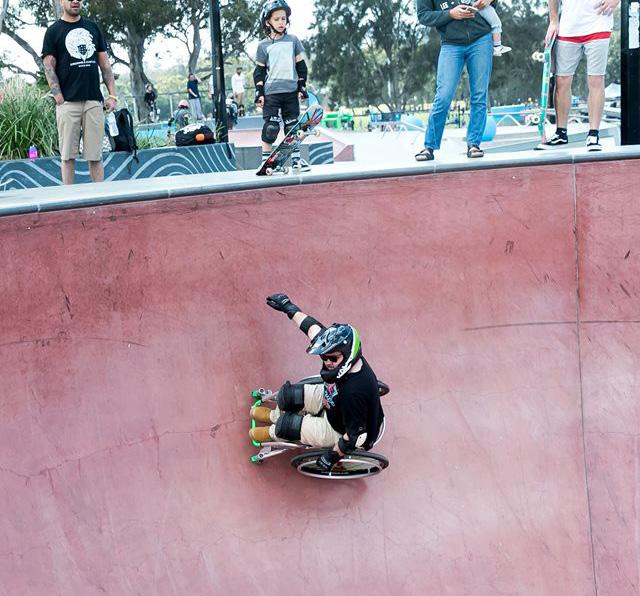
“The feeling of surfing concrete waves is so freeing. When skating, I'm not focusing on my chronic pain; I'm focusing on the feeling of carving the bowl,” he said.
Tim Lachlan is bringing his wheelchair skateboarding skills to people with disability with his accessible skate and mobility workshops.
Utilising his Wheelchair MotoCross wheelchair, the 25-year-old Queenslander is teaching wheelchair users advanced mobility skills to help overcome access barriers in daily life, such as hopping up or down curbs to enter a shop, while also increasing the profile of skatepark sports for people with disability.
“I started the initiative to get people involved in WCMX after I finished high school, as I wanted to share my skills with people so they don't have to rely on wheelchair access and can go where they desire and do what they want,” Tim said.
A s a NDIS participant Tim has access to support workers who help him keep his initiative going.
“I used to be able to get out of my chair to push people around, but due to pain and fatigue, I can't do that anymore. Having a support worker there who can help push attendees or me up ramps or act as a spotter helps me host safe, educational, and fun clinics,” he said.
“The NDIS makes life much easier and less stressful. My partner works night shifts and can't always help me run skate clinics, so having someone who can help with such physically demanding tasks makes managing my pain and fatigue much easier.”
T he Holmview local, who has spina bifida and Ehlers Danlos Syndrome, said he realised the therapeutic
T im received assistance to apply for and implement his NDIS funding from Carers Queensland’s NDIS Local Area Coordination Partner in the Community Program for the Beenleigh region.
T im is now working towards his main NDIS goal: to complete his studies and become an occupational therapist who uses skateboarding as therapy.
“My Carers Queensland Local Area Coordinator helped me to manage my plan so that it meets my assistive technology needs and includes my goals in occupational therapy and skating. I wouldn't have been able to do that without her help,” he said.
“Growing up with invisible disabilities was tough; it took me 10-plus years to get a concrete diagnosis. Finally, having my disabilities recognised and receiving the support I've needed for so long is incredible.”
Link to... Mobility
December/January 2023 42
Exercising made easy
Everyone who can access the NDIS, NDIA and Aged Care support can start their journey with Easy Exercising.

Easy Exercising really does allow participants to exercise with ease and enjoy a close-knit community. There’s no pain; instead, laughter and a friendly chat as you exercise.
How?
The answer is our unique, powerassisted machines. They do the exercise for you so that your individual, gentle program safely gets you to your goals –without any need for exerting exercise.
You can rely on our service, knowledge and experience. At Easy Exercising, we really listen and want to get to know you. We are here to help you plan your future and are passionate about helping you create a brighter future.
We supervise each participant to make sure you are exercising the muscles without putting pressure on the joints.
Your free trial session will help you see how the power-assisted machines work, and help you get a sense of the closeknit community that we foster.
You will be safe and won’t be intimidated. You won’t be forced into any program, just offered solutions with guaranteed results.
Here’s what Rob said after starting at Easy Exercising: “Since I’ve been coming to Easy Exercising my mental health has been great, my movement has been great.
Things I can do … I could put my shoes and socks on after a few sessions. I used to get depressed all the time and now I hardly suffer with depression. I look forward to attending daily and the social aspect has really helped to regain my confidence and have fun. I have post-traumatic stress disorder and it’s
even helped with that. The movement in my arm, my back, my circulation overall feels much better.”
A nd Susan said: “It’s improved my muscle strength after years of chronic health issues”.
We currently have a number of locations in Brisbane/South-east Queensland and plan to open more across Australia. Find your nearest location at our website.
Visit www.easyexercising.com.au to book a free trial session at your nearest clinic.
NOTE: we also provide opportunities for adventure through our weekends away with participants.
Register your interest in those trips at: https://easycommunityservices.com/
Exercise with ease and enjoy a close-knit community.
Scan the QR and mention code: EASY to book your free trial session now!
NDIA REGISTERED
MOBILITY
linkonline.com.au 43
Hiking is the essence of life, and Mable helps me pursue it
So me listen to music to feel at peace, others meditate. For Penny, it’s hiking. The 6 3-year-old Mable client finds that hiking gives her “a sense of calm and connection with the earth”.
However, due to an accident long ago, Penny experienced severe damage to her s pinal cord. “I have neurological limitations and restrictions on my mobility. I walk u sing smart crutches, without them I’m not able to mobilise for any distance.”
Determined to go back to hiking, Penny decided to begin rehabilitation with small s teps and celebrating small achievements, essentially “taking back control of my life”. “I would belt bags of rice onto my ankles and try to lift my legs off the bed to train for Mt Crackenback and Mt Kosciuszko,” she said.
Finding Mable — and an instant connection
Penny also came to the realisation that a support team was integral to reaching her aspirations. Rachel, Penny’s independent support worker on Mable, shares her love for the outdoors and adventure. Many clients request for a ‘meet and greet’ with s upport workers on Mable before booking them, and so
did Penny. “Our initial meet and greet was a hike on Mt Jerrabomberra.”
T he connection was instant. “I believe in the value of mutual respect and effective communication. There is a wide generation gap between Rachel and I, however, this has been an advantage with an opportunity to learn from each other,” Penny said.
A side from a shared love and appreciation of the outdoors, Penny said they have great laughs along the trails.
“ While walking, we established that we had shared values and beliefs. And while we will discuss the risks of the areas in which we hike, Rachel maintains a calm and relaxed demeanour and at no point directs or tries to control my choices. Establishing clear boundaries around expectations and what works in terms of p hysical support is something we discussed early on and is an ongoing process.”
Choice and control with Mable
Penny said that one of the barriers to pursuing her passion of hiking is the misconception that people with disability can’t. “Surprise – oh yes, we do! What we need are the resources and social structures that support such adventures.”

Penny has a team of five independent support workers, all on Mable. “It gives me an o pportunity to have choice and control over who I engage as my support workers.
W hile I require basic care in terms of shopping, personal care and transport, my heart comes alive with hiking.”
Flexibility is one of the biggest benefits of being on Mable. “I have flexibility in relation to the hours worked. Flexibility is also important for me as my disability is f luid and can change from day to day. Some days I can hike up steep inclines for a couple of hours, other days I can barely walk to the letterbox. Therefore, my workers need to be able to accommodate my physical capacity on any given day.
“I found that the ease of use of the Mable app offered a quick, safe and reliable way for me to engage with, monitor and update information regarding my s upport workers. Particularly, I liked and have found the option to meet with and c hoose my support workers empowering; it enables my agency.”
Sign up on mable.com.au to find the right support worker for you
Link to... Accommodation & Home Support
December/January 2023 44
How to support Independent Living in five critical skills
Living independently at best is a long journey for people with disabilities. Although there are many difficulties, living independently is an achievable goal. It takes many small steps and many contributions, not only from the person themselves but also from external supports such as family members, support services, friends, etc.
B esides family members, it is important to choose a support service willing to commit and support you with dedicated care combined with professional knowledge.
Rosie’s Love and Care is proud to contribute to every step of their clients’ unique journey, especially in the five aspects we believe is essential for independent living goals. We encourage self-practice for high-functioning individuals and support for low-functioning individuals
1. Personal Care: Taking care of yourself is the very first step. Personal care includes personal hygiene, dressing, showering, toileting, etc. We support people with low functioning and encourage self-practice for those who have potential or are working to achieve their goals.

2 . Cooking/ Preparing healthy meals: Cooking is one of the essential skills and is also an enjoyable activity. Our cooking class is designed to focus on practising cooking skills such as using knives, cutting, mixing, stirring, preparing ingredients etc, while enjoying delicious recipes. We also support preparing hot meals for low-functioning clients as requested.
3. Money and budgeting skills: For participants that can understand concepts, we support them in learning how to use money using scenarios and real experience.
4. Community access: Community access can include planning your trip, using public transport and asking for help when needed.
5. Understanding/Making your own decision in career goal: Career is an important goal for anyone, but for people with disabilities, it is a significant meaningful step. Not only about independence but also about being confident and making choices for their life.
We work around each participant’s goals and ability to support achieving as much independence as possible.
“ We pride ourselves on being a part of many life-changing journeys. Seeing our clients improve little by little every day is a meaningful inspiration to our work.” – Rosie Nguyen, Rosie’s Love and Care director.
To find out more about programs/services visit: www.rosielovecare.com.au or PH: 0492 668 668 or email: info@rosielovecare.com.au
Simply Helping you to reach your goals
employment, whether it be helping someone prepare for work, or transporting them to and from their workplace in time for their shifts.”
O ther services are easily provided
A s an in-home care provider, the majority of the assistance offered by Simply Helping is delivered at a participant’s home. However, their support can also extend into the workplace, during rostered hours. “We often collaborate with employers to ensure that people receive the support they need while at work,” she said. “For example, if you have recently gained employment at a local business, we can take you to and from work, and one of our lovely support workers can stay with you throughout the duration of your shifts, if need be. Even if you work independently for most of the day, we can provide any other services you might need while at work, like personal care during break times, or help with prioritising your workload.”
Every Australian should have access to fulfilling employment. Having a job can connect us to our community, enable meaningful relationships, provide financial independence and encourage a sense of self-worth. But for some people with disability, gaining and maintaining employment can come with its own set of challenges; how will I get to and from work if I’m unable to drive? Can I access my necessary personal care services while at my workplace?
Disability support providers, in collaboration with Australian
business owners and disability employment resources, are working to help people with disability engage in the workforce, in a way that suits them and their abilities.

Simply Helping director and founder Angela Feery-Richards spoke to Link about the role of support providers in disability employment. “We support a number of Australians who are active in the workforce, whether they are working for themselves or a business in their local community,” Feery-Richards said. “Often, our support plays an integral role in maintaining that
“If your goal is to find long-term employment, disability support providers like Simply Helping can give you a helping hand. Everyone has a different goal in life, and if yours is to join the workforce, we will do all we can to help you reach that goal. We are proud to play a part in aiding meaningful employment for Australians of all abilities because we all have something to give and should be allowed the chance to do so in a supportive and comfortable environment,” she said.
Simply Helping is a registered NDIS and home care provider, servicing locations throughout Australia, including Victoria, New South Wales, Queensland, and Perth. With flexible and tailored support options, Simply Helping enables people with disability to reach their goals, both inside and outside of the home. To learn more visit: www.simplyhelping.com.au
Link to... Accommodation & Home Support
December/January 2023 46
Supporting Suzanne to live her life her way
Co mmunity Support Inc has been providing home care services for people living with a disability, mental health, or aged care related need for over 31 years. The organisation offers a range of professional, flexible services for children, young people and adults requiring home or community support across all metropolitan and some regional areas of South Australia. With qualified staff supporting clients across the state, the organisation provides a range of services to help them live their life, their way.
“Our client, Suzanne Clarke has been involved in a singing group for several years now and in that time, they have performed multiple concerts at various locations, as well as releasing a CD titled ‘Infinity’.
“She attends her singing classes every week with her support worker, who also joins in and sings with Suzanne. They have fun together and share a laugh”, Community Support Inc CEO Sue Krake said.
With assistance from her support workers, Suzanne has performed for residents at an aged care facility as well as for members of the Probus Club. She
has formed friendships within the group and continues the connections outside of singing classes. Suzanne enjoys outings, sharing in a cup of tea after hydrotherapy sessions and going to her local café for lunch. She also attends art and craft groups and has been a volunteer for Neighbourhood Watch for over 10 years helping to deliver newsletters in her suburb. Suzanne even donates stationery items for children who may need them at her local schools.
“Her support workers assist her to be able to connect and participate in the community and allow Suzanne to lead a full and happy life. She refers to them as her angels and feels very blessed to be supported by such a great team,” Krake said.
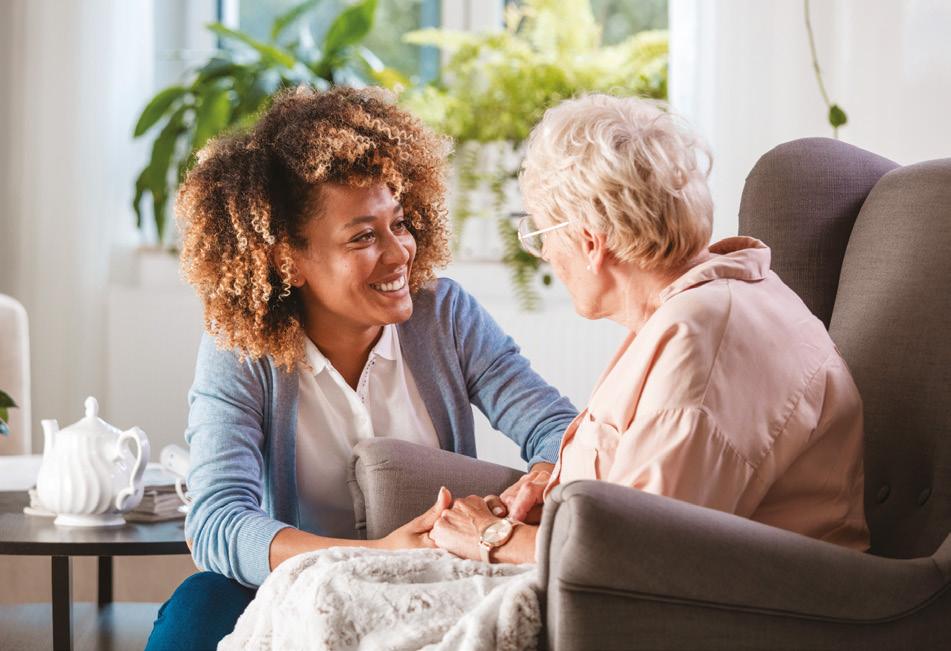

Community Support provides highly personalised and professional services such as support co-ordination, social support and skills development, domestic and transport assistance, personal care, respite, training and life skills. The organisation works very closely with other providers, family members and broader networks to ensure an individual’s goals are achieved and that every client’s support plan is catered specifically to their needs.
To find out more, contact Community Support via telephone on: 08 8429 1200, email: hello@csisa.org.au or visit our website: csisa.org.au
ACCOMMODATION & HOME SUPPORT
linkonline.com.au 47
Suzanne Clarke
KPMG Community Care
The disability sector is evolving at pace with greater choice and control in the hands of the customer. For providers, it can be overwhelming to address the challenges of this shifting landscape. How to meet customer expectations? How to balance regulatory requirements with day-today duties? How to improve operations for financial sustainability?
KPMG Community Care is responding to this by putting customers front and centre with new care management software for disability providers.
A frictionless customer experience is a key differentiator for today’s NDIS providers. It involves interacting with customers at a range of points in their journey through the system. Regardless of the entry point or when the first interaction occurs, providers need to offer a seamless, connected experience to their customers and family members, from marketing and referral through to assessment and delivery, to support ease of access and create a memorable experience.
K PMG Community Care is a futureready cloud platform offering an end-to-end view of the personalised customer journey with data accessible anytime, anywhere.
Staying compliant
Providers are under constant pressure to respond to new NDIS requirements, ensuring that customers are treated with the utmost safety and dignity. This kind of governance can become an administrative burden, especially when disparate systems and manual workarounds lead to a lack of control and transparency. KPMG Community Care is purpose built to match NDIS processes, so that teams can spend less time worrying about compliance and more time focused on clients. In-built quality and compliance controls, including reporting and analytics capability, helps providers stay on the front foot while improving the quality of care.
Making decisions with real-time data
T he ability to harness data with a single view of customer helps to sharpen decision making and allows for accurate and timely reporting. Capturing data across the entire continuum of care such as consumer profiles and assessments, workforce data, incidents and quality indicators provides the wholistic picture providers need to diagnose problems and drive operational efficiencies. KPMG Community Care makes it easy to access this real-time data at home, from the office or on the go.
D riving operational efficiency
To stay competitive and deliver quality outcomes, providers are putting customers at the heart of operations while looking for ways to drive cost effectiveness, data-centricity and compliance. From the back office to the front line, it’s all about delivering high quality care in the most efficient way possible. Moving beyond legacy systems and manual processes is a step in the right direction.
O rganisations that adopt integrated technology solutions are better able to balance costs, optimise their workforce and stay compliant. With connected processes they can minimise administration while streamlining reconciliation and payment with relevant government bodies.
K PMG Community Care is a one stop cloud platform that connects your organisation from initial contact and care planning to service delivery and billing. You can leave manual processes behind and share data between front, middle and back of house.

Future proofing your organisation
I n today’s environment, the right technology can mean the difference between being a leader or losing market share. Providers need to invest in future-fit solutions to stay ahead of the competition and keep pace with changing customer expectations. KPMG Community Care has been developed on the Microsoft Dynamics 365 Customer Engagement cloud platform ensuring that organisations are well positioned to navigate continual market changes and meet new customer demands.
D rawing on deep sector expertise
K PMG is committed to supporting the disability sector with the shared purpose of achieving better outcomes for the wellbeing of all our communities. Our team of sector specialists can help you navigate challenges and leverage opportunities to deliver optimal outcomes for your workforce, partners and customers.
To learn more visit KPMG.com/au/ CommunityCare-Link
Link to... News
December/January 2023 48
An accessible workplace for everyone
































Not only do clients with disabilities require sufficient access within their home to support everyday living but also within their workplaces, to ensure they can continue to work more productively and safely. Everybody has different requirements. Workplace modifications can assist people returning to work or ensuring people can continue to work despite their disability.










B eneficial minor modifications can include custom made ModWood ramps or ready-made rubber wedge ramps, concrete pathways, widening corridors and doorways to accommodate wheelchairs, lever door handles, lifts and grabrails or handrails.

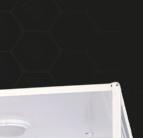

























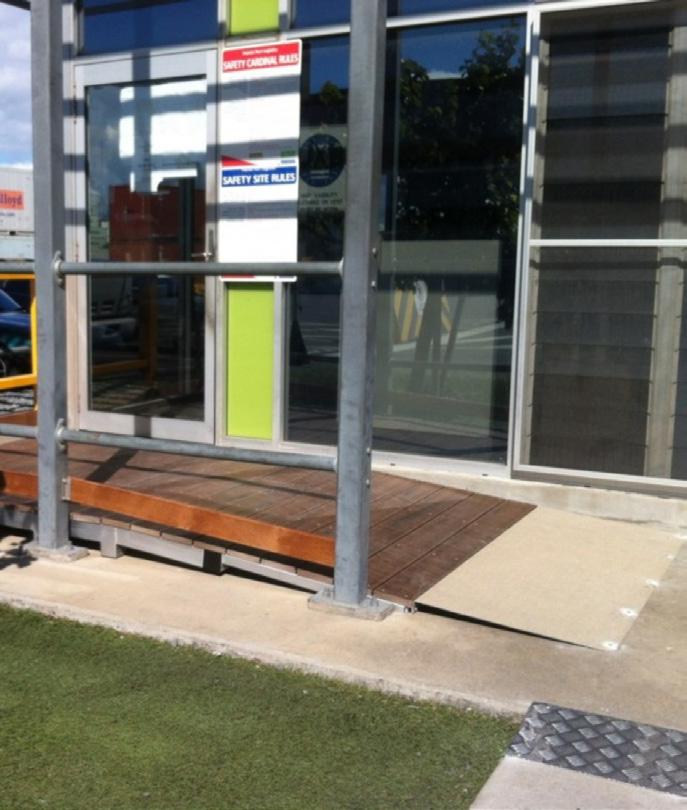







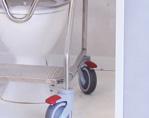





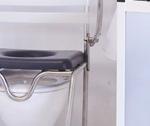
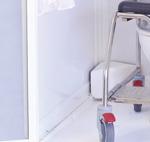

B eneficial major modifications can include accessible bathrooms and kitchens. These can feature disabled friendly toilets, wheel-under basins,

sinks and benches to accommodate wheelchair users, level entries, non-slip tiles, easy to use tap fittings and pullout shelving.
The most essential modification to an office or workplace is to make it accessible for the individual’s circumstances and to facilitate true independence, it is important to facilitate ease of entering and exiting the building with access to all internal rooms. These types of modifications will support every employer and employees to ensure they can continue to work with their disability and future employees.
V IP Access can provide further information and ideas with regards to how to best accommodate employees with physical disabilities, in addition to design, implement and install the necessary workplace modifications and solutions to bypass any obstacles.
Contact us at: enquiries@vipaccess. net.au or (07) 3807 4309 to discuss how we can assist you in modifying the workplace to accommodate yourself or your employee.
www.vipaccess.net.au enquiries@vipaccess.net.au ACCOMMODATION & HOME SUPPORT linkonline.com.au 49
National register for special purpose car seats
Parents of children with disabilities and medical conditions can access independent safety information about specialised car seats following a world-first crashtesting program.

There is now a national register of special purpose car seats, where for the first time, families and the allied health professionals
who support them can find independent safety information about each product.
Mobility and Accessibility for Children in Australia Ltd (MACA) has completed 54 sled-crash tests on 15 different car seats as part of an Australian Safety Assessment Program. Of the 15 special purpose car seats that were crash
tested, eight have been published on MACA’s national product register. A number of products are undergoing further investigation and/or testing, while some have been withdrawn from the Australian market.
To access the national product register, visit macahub.org.
Exoskeletons taking movement another step forward
E xoskeletons, motorised mechanical devices attached to an individual’s body to assist movement and deliver superhuman skills have been a popular feature in science fiction movies.
Now researchers from Victoria University’s (VU) Institute for Health and Sport are using exoskeletons in real life to help people with physical injuries or neurological conditions, such as spinal cord damage, stroke, or osteoarthritis improve their mobility.
It is hoped the research will allow wearable exoskeletons to replace aids such as wheelchairs, walking frames or canes.
VU researchers are working with Japanese company, Cyberdyne that has developed the first wearable cyborg, the Hybrid Assistive Limb (HAL) exoskeleton.
HAL identifies and anticipates an impaired person’s residual muscle activation commands as ‘micro-electricity’ through a sensor attached to the wearer, which then operates an external robotic device on the non-functioning limb. If attached on an ankle, for example, it can use the micro-electricity signal to precisely control the exoskeleton’s required timing and ankle movement to walk.
With repeated training, the device could affect a wheelchair-bound patient’s brain
neuroplasticity, helping to reconnect signals between their damaged nervous system and limbs to improve or possibly restore motor function.
“Using exoskeletons for technologyassisted rehabilitation is already happening around the world,” researcher Dr Hanatsu Nagano said. “And VU’s research with our Japanese partners is laying a foundation for clinical applications in Australia,” he said.
T he project received a grant from the Victorian Government’s Victorian Endowment for Science, Knowledge and Innovation.
Sydney is a leading accessibility city
Sydney has been named as one of the world’s most accessible cities. It joins London, Amsterdam and Singapore on Valuable 500’s list of the Top 10 cities voted by 3,500 tourists with disability. Sydney was highly
rated for is wheelchair accessibility for visiting landmarks, restaurants and entertainment venues along with its more than 2,100 tactile and Braille street signs.It also rated well for its accessible public transport
and accommodation options close to cultural attractions, shops and restaurants. However, many heritage buildings remain inaccessible, and many venues don’t have an accessible bathroom.
Link to... News
Sandy and her 14-month-old son Ashton. His Australian standard car seat was not meeting his needs when travelling in the car. Ashton’s occupational therapist assessed his needs and prescribed a special purpose car seat.
December/January 2023 50
Promoting independence, what’s it all about?
Wi th the introduction of the NDIS, we have seen a formalised push for greater independence for participants. As a result, people living with a disability now have a choice on where and how to access their support network, choice and control on how much care they receive and independence in their choice of assistive technology and equipment they want, utilising their NDIS support package. It’s a significant step towards increased independence across the board, meaning that participants can increase their abilities, and opportunities are being created to be involved as much as possible in their own care. With goals around health, wellbeing, and independence greater autonomy for decision-making about their own life is possible.

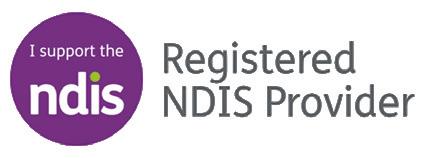
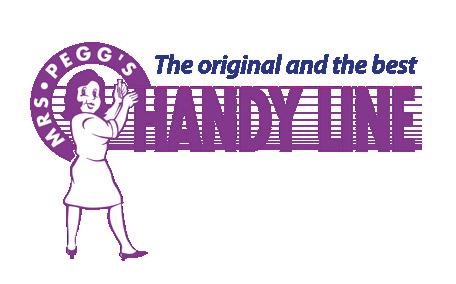

Rather than creating dependencies, the emphasis is on encouraging greater

independence, through the provision of advice, supports and practical solutions.

So, what is promoting independence all about? It’s about working with your providers on a series of small steps and incremental changes that add up to a more empowered lifestyle and more control for yourself. Getting there requires patience and perseverance to adapt. It’s about starting slowly, by being empowered with your daily life decisions.
It can be simple things like how to wash the dishes, when and how to do the laundry, or even what to cook for dinner. As you build up your decision-making confidence with everyday decisions and activities, your confidence transfers into new and more challenging situations. Over time, your confidence will grow, and the breadth of the responsibility and activities you take on will widen.
Take Caleb Crowden. Caleb aged 21, from Adelaide was born with cerebral palsy and lives with his mother. As a permanent wheelchair user, Caleb is focused on building his capacity and skills to eventually be able to live independently in his own space. He is working towards that goal with incremental steps. Taking the lead from his mother, he learned a whole range of daily living activities, such as cooking, cleaning, and doing his own laundry.
Taking about his goals he said: “Getting the right equipment to help you to do the tasks you want to be able to do yourself is important. As much as I love my mum, she knows that I’m building towards living independently in my own space just as soon as I can. Which is why I’m enjoying doing housework myself. I know that the more I can do, the more confident I will be to make the move.”
ACCOMMODATION & HOME SUPPORT linkonline.com.au 51
Hireup Announces Eight Good Life Award Winners

Meet the winners who told Link why they loved being a support worker and what these esteemed award means to them.
NDIS registered platform, Hireup has acknowledged the role that support workers play in assisting people with disability. Each year Hireup presents their Good Life Awards to support workers who have positively impacted their client’s lives.
Hireup CEO Laura O’Reilly said the company wants “to challenge stereotypes around ‘typical’ disability support” and these awards are one way they do this.
T he eight winners were selected from hundreds of applications across Australia, each receiving a $1000.
A ll applicants were nominated by their clients who shared how their support worker had helped them to access opportunities and achieve personal goals, such as trying new things and buying a home.
Hireup is driven by the goal to make revolutionary change for Australians with disability and 83 per cent of their clients recognise the positive impact from the services in their lives. People with disability can hire and manage support workers from Hireup that work for them. O’Reilly believes that these awards are a way to “show the benefits and rewards of this positive career path”.
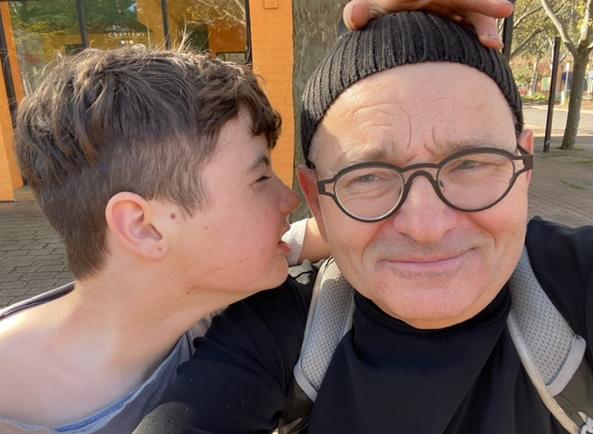
A NDIS Participant Outcomes Report found that 52 per cent of adults with disability on the NDIS were satisfied with their life, this is 25 per cent lower than the national average.
According to O’Reilly the awards show that Hireup are changing that disparity by improving outcomes for those living with a disability.
T he winners list:
Chloe Ferrari: “I feel honoured to have won an award and be acknowledged for my work. I’m just doing what I’d hope someone would do for me if the roles were reversed. To win an award for that it incredible.”

Marcin Lazarowicz: “Carer’s work gives me the awesome opportunity to observe how my little help turns into real achievements of the autistic kids I am supporting. I feel proud being able to participate in such a great project as NDIS and its best outcome - Hireup.”
Nicole Kendall: “It was so considerate of my client to nominate me, and I’m thrilled to have received a Good Life Award. It’s gratifying to know she appreciates my efforts, and we can celebrate what we have achieved together.”
B ibek Khaniya: “It was unbelievably awesome, to receive this award and I still feel emotional when I think about it, as it is one of the best things that ever happened to me. It's wonderful to receive not just recognition, but public recognition for something you have done.”
Lisa Robinson: “I love that I can help my clients to push themselves to achieve goals that they have always wanted to achieve, but that they have not necessarily ever been able to work on. I love that if something can’t be achieved right away, I know that it I can be achieved at some point and I love finding fun and creative ways to push my customers to get there. That is a really rewarding feeling for me. For example, to see my client now be able to walk independently, as well as communicate primarily verbally now, has been so rewarding.

December/January 2023 52
Link to... Accommodation & Home Support
Bibek Khaniya
Nicole Kendall
Zeph (L) & Marcin (R)
Chloe Ferrari
“
When we first met, these were things that she had wanted to work on. Goals may not be achieved right away, but I know that everybody can achieve their goals in time and being a part of that process for them makes me happy. I feel very honoured to be a Good Life Award winner, amongst all the other amazing winners and nominees. I was so grateful to have even been nominated, so to have won an award has been a real blessing.”
Dieu Khanh Le: “Working as a support worker is an incredibly rewarding career to me. I found that what I do can make people feel happier, more comfortable, therefore, they could live a better life. This career is much more than just care. Support work is not just about physical support, it could also be social support and mental health support. This career helps people with disabilities to maintain their independence, achieve their goals and their dreams. Working with people who suffer from some conditions or illness helps me to live a more meaningful life. Whenever I get stuck in some negative or depressed thoughts and feelings, I will look back to my clients as examples of how hard they try to overcome all difficulties in their life. This kind of job has increased my heart capacity and I became more kind and generous. It's about the sense of maturity. As an occupational therapy student this career equips me with skills and knowledge for my future career.
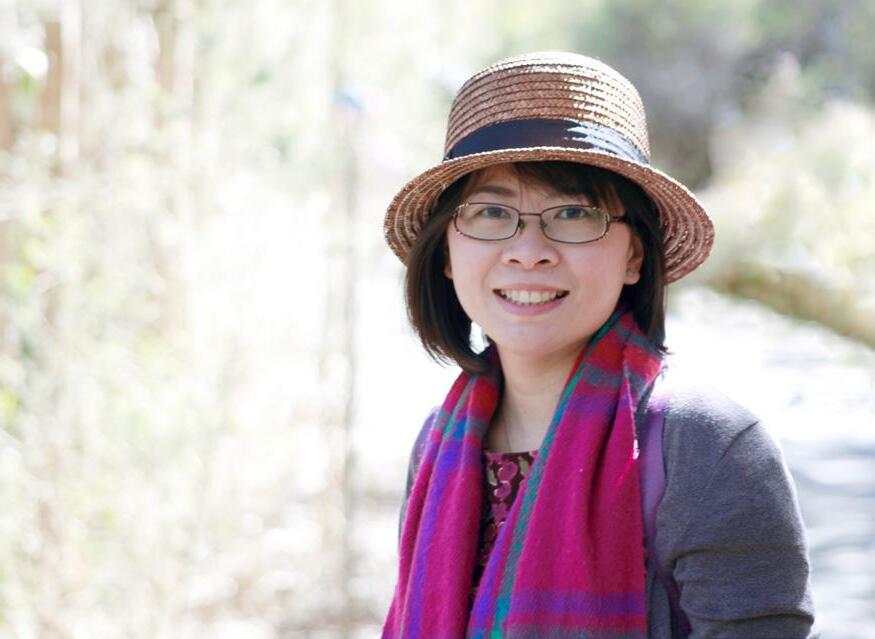
“I never imagined that I could win this award. Words could not express all my feelings of happiness and gratitude to Hireup and my amazing client. It is so inspiring and amazing. I deeply appreciate Hireup for recognising my work. Receiving awards is not just for show, it is a symbol of respect for our work to contribute to the life of people with disabilities. Through this recognition, I wish to bring motivation and inspiration to all individual support workers in Australia and worldwide.
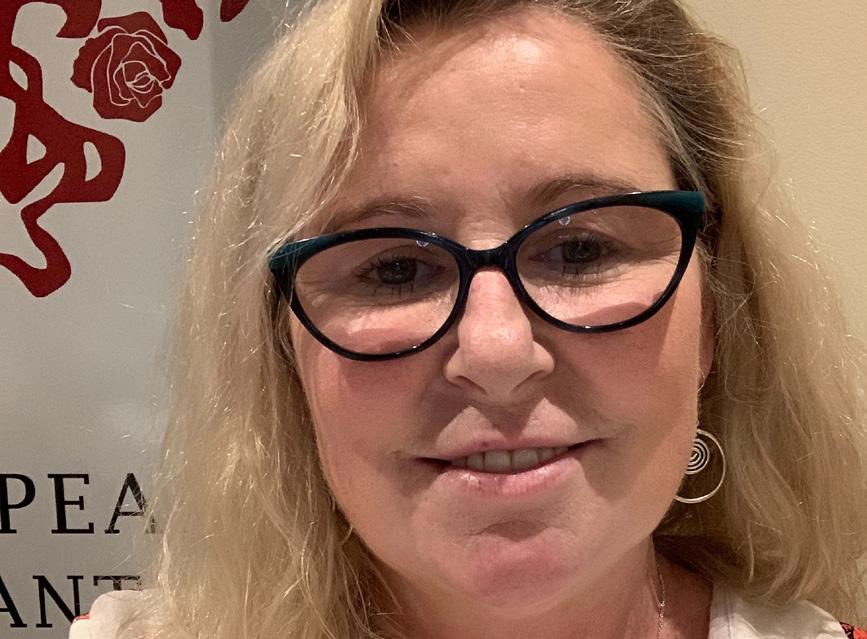
As a non-native speaker, I also dedicate my award to all immigrants whose English is not their native language, who have been struggling to fit in a new environment with a different culture and language. I would like to say to all my colleagues to just try your best to support your clients, what you receive is much more than salary".
Dita Campbell: “I love support work because I believe I have the skills to make a positive impact on my clients and their family. In return, I also receive positive experiences. True friendship and trust have been my experiences. I am truly honoured that Nina’s family have wished for me to be recognised by putting in a nomination. To be a winner is so unexpected and such a delight. It is another link to bond Nina and I even stronger. Nina’s sister, who nominated me, let me know that after the awards that Nina was “buzzing” (so happy) for our recognition. We had a ball doing the photo, gaining an experience we had never had before with a professional photo shoot.”
Hayley Miles: “I love the opportunity support work bring me to use all my life experiences in different ways. I have tried everything from owning my own cookie business with my parents to hairdressing to even playing roller derby, to be able to use skills and give each individual participant a different part of me that can bring them the most support is so much fun.

“It’s wonderful to have something like the Good Life Awards to showcase support workers and I'm just honoured to have been considered let alone win! Support work can be lonely sometimes, we don't get to come together often and as a collective our passion is focusing on others and help our clients achieve their goals. We do this job because we love it but it's always lovely to know we're doing a good job.”

linkonline.com.au 53
ACCOMMODATION & HOME SUPPORT
Hayley Miles
Lisa Robinson
Dieu Khanh Le
D ita Campbell
An audio app that takes travelling to a ‘immersive’ level
By Rose Lane
What’s the first thing most people do when they decide to book a holiday? They go online or pick up brochures and look at the pictures. But what do you do if you can’t see those pictures? How do you get a sense of what a place is like? This is a problem for which Hailey Brown and her team at Vacayit believe they have developed a solution.
misleading because it lacks the detail needed to make an informed decision. She said the aim of Vacayit is to make the experience more immersive.
McEwan compiles the content by liaising with tourism operators, using a questionnaire prompting them to provide information about the multi-sensory aspects of their place or experience. “Is there the smell of scones baking, or the smell of fresh linen sheets?” she said. “It’s cutting edge. We are provoking people to think about the bigger picture of what they are offering. Not just accessibility in terms of physical access to a place.”
The new Vacayit app provides audio descriptions of places to help people who are blind or have impaired vision to plan their holidays, by describing not only what a place looks like, but also the sounds, smells and general ambiance of the place.
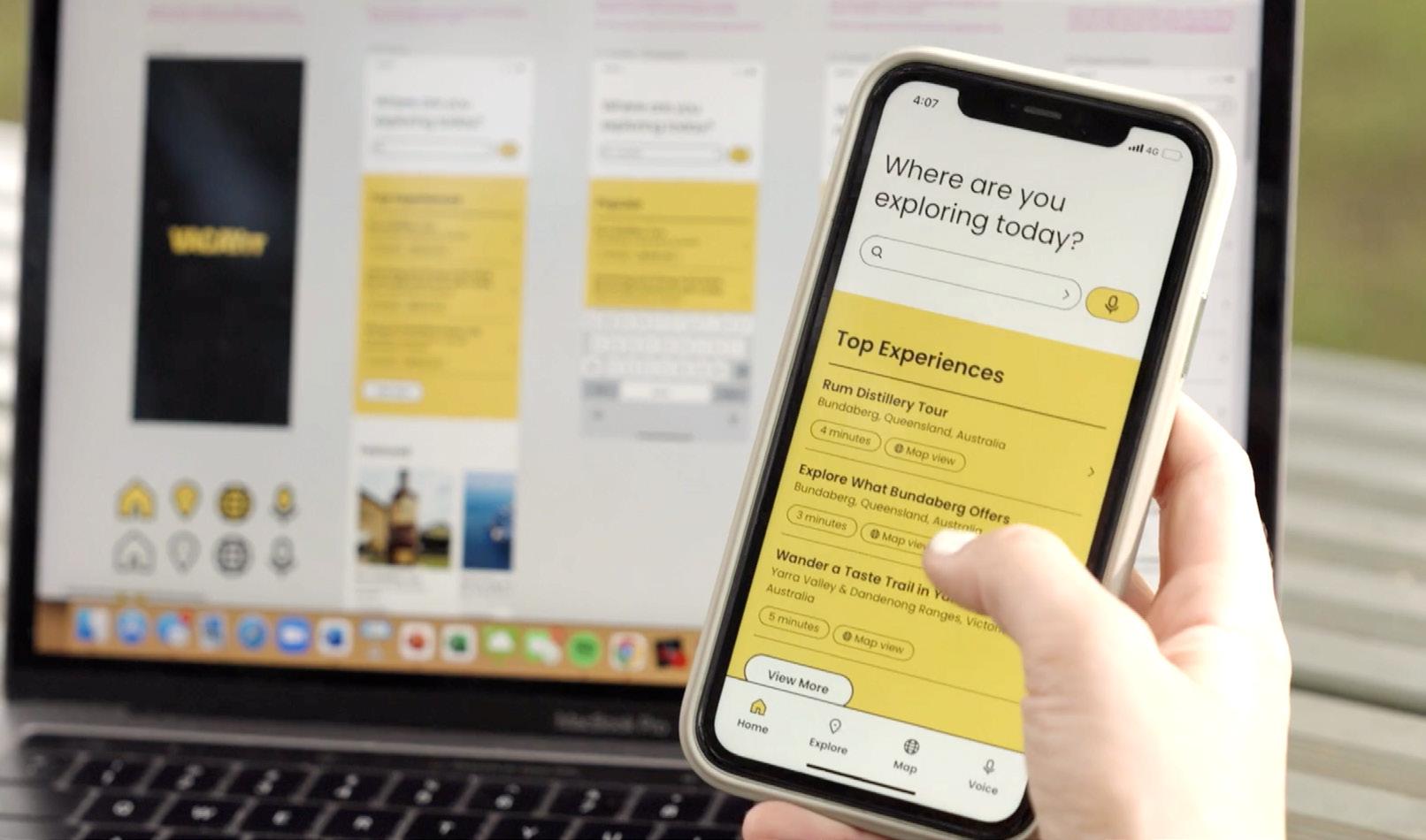
The app features audio stories, soundscapes and history clips, industry and operator supplied experiences, gesture-based navigation, voice assistant integration and community content.
T he initial concept for Vacayit was developed by Brown when she was studying Tourism and Psychology at the University of Queensland. One of her tutors nominated her to present an idea at the World Tourism Forum in Lucerne, Switzerland and she came up with the idea while she was having dinner with her friend Henry, who is blind. He told
her he would like more information about destinations, because so much is image-based, and very little is audio.
Brown said one of the first questions sighted people ask is why someone who can’t see would want to travel. “Everyone thinks that the experience of being at the top of a mountain is the view, but it’s the feeling. You have fresh air, you feel this sense of achievement that you made it to the top.”
Vacayit head of content, Lisa McEwan who has low vision, described travel as multi-sensory. “A lot of experience you gain is from people you meet, the music, the food.”
McEwan has travelled extensively from New Zealand to Finland, but she said the process of researching and booking a trip is hard, and text alone can be
For one of the destinations, Paronella Park in North Queensland, she largely drew on her own experience of the place. And while there is the option to be driven down to the waterfall in the park, she chose to take the stairs. “It gave me a greater sense of the grandeur and magic of the park. It felt like I was not only stepping down the stairs but also stepping back in time. I also appreciated hearing the gradual increase in volume of the cascading waterfall on the lower level,” she said.
Vacayit has launched with a few destinations, but new content is being added every week. So far it contains content from South Australia, Victoria, North Queensland and Perth, with 50 experiences in Tasmania coming on board soon. The aim at this stage is to cover as much of Australia as possible. The Vacayit team is hoping to eventually expand to New Zealand, Fiji then to other English-speaking countries.
Find the app at: www.vacayit.com/
Link to... Travel & Leisure
December/January 2023 54
Explore the world at your LEISURE
This year has seen us take substantial steps to move on from lockdowns and isolating as we settle into our new norm in a post pandemic life. Whilst caution still prevails it has become evident that we can mostly return to our regular lives and after some extended periods of being somewhat grounded, importantly for many it’s now time to cross off that item at the top of our list and take a well-deserved holiday.
T he team at Leisure Options has spent the year helping their travellers take their initial steps back into travelling as domestic, international and cruise travel all return as achievable holiday options.
B eing passionate travellers themselves the inhouse holiday team have personally taken the opportunity to dust off their passports, pack their favourite suitcases and return to their

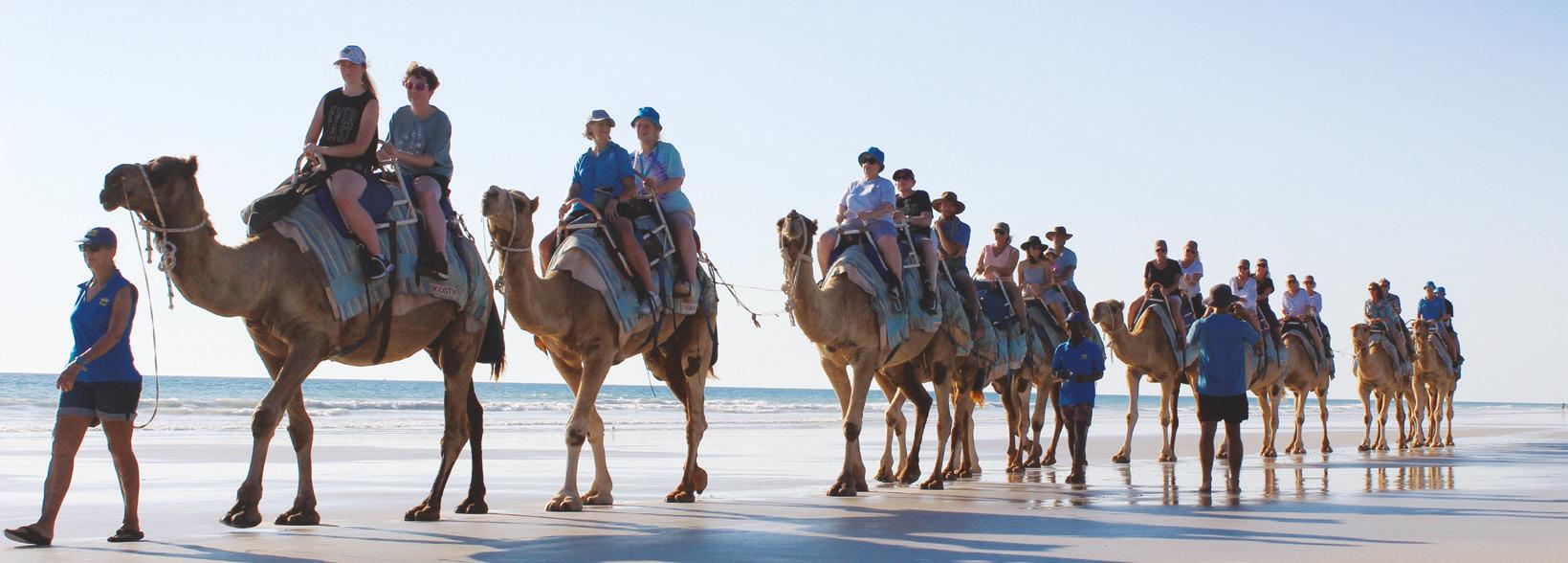
beloved exploration of this amazing and inspiring world that we live in.
Destinations visited by the Leisure Options team this year have included Fiji, Hawaii, Thailand, California, England, France and Norway as well as domestic destinations and international cruises.
We are pleased to report that, aside from taking some additional precautions and being proactive about your personal health, travelling at home and abroad is once again an enjoyable, must do experience.

A s we near 2023 the team are drawing on their recent travel adventures to update existing and create new, safe supported holiday experiences that are equally exciting, memorable, and fun.
By Christmas we will have seen our return to group international and
cruising holidays begin and as we look ahead, we are excitedly preparing for our first post pandemic group departures to South-East Asia, the United States and Europe.
T here’s an incredible world out there waiting to be explored and the team at Leisure Options are here to help make that happen. As a supported travel specialist, let us make those dreams a reality.
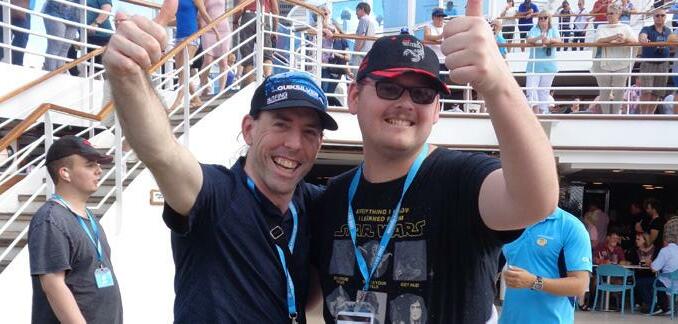
Contact us for further information on: 1300 363 713 or email: mail@leisureoptions.com.au

Great holidays and travel for people with disabilities
With more than 30 years’ experience in both the travel and disability industries, Leisure Options is Australia’s only national award-winning, accredited travel agent specialising in supported travel for the disability sector.



• Focus on providing holidays that allow maximum choice, loads of fun, high staffing ratios, commitment to individual needs, and a supportive holiday environment
Choice of either group or individualised touring Respite care offered in a stimulating and fun-filled environment
Over 80 departures annually to local, national and international destinations
• Passionate, energetic, and professional tour leaders with extensive qualifications and a world of experience Registered service provider with the NDIS
For more information call 1300 363 713 or visit our website www.leisureoptions.com.au
We support the
TRAVEL & LEISURE linkonline.com.au 55
The mistakes people love to make
We’ve all been there. Clearing out our pantry of ‘unhealthy’ foods, starting on a Monday of course, HUGE workout and then it all falls apart within a week. The pace we’ve set becomes unbearable and we fail and give up. So, allow me to propose a new ambition:
Achievable results, in a long window of time, through enjoyable and manageable lifestyle changes.
O r as the great Bruce Lee once said: “Long-term consistency beats shortterm intensity”
Here are three principles I would encourage you to adopt in your journey to improved health and fitness.
1. G ive your deadline a big extension! Instead of achieving your goal/s in 12 weeks, give yourself 12 months. It takes the pressure off, allows for setbacks and what’s 12 months in the grand scheme of your life? Improving your health is hopefully adding more than 12 months to your life.
2. Consistency. Focus on the quantity of your workouts, making time and doing something every day is a better focus than on killer workouts. Start with 4 sessions a week, even if the workouts are low intensity. Then over-time, which we have lots of now, you can slowly ramp them up, which brings me to…
3. Start where you are, plus 1%. The 1% rule has a lot of success behind it, most notably (for me anyway) for Chris Nikic, the first man living with Down Syndrome to complete an iron-man. How did he do it? He focused on getting 1% better every day, over a long training period. Almost unnoticeable per day, but seriously it adds up over time, especially with consistent workouts.
I’m a personal trainer, I’m studying health science and I own a fitness business that specialises in unique support needs – which means I am not short on people asking for tips to get fit and healthy… quick!
W hat’s the fastest way to lose 10kgs?!
How do I build heaps of muscle in time for summer that's just around the corner?!
U nfortunately for them, there is no safe or reasonable way to achieve either of those things in the timeframe they’ve set. They see fitness and health goals as a project, a once-off activity to achieve. Asking for an eight-week program from hell to get somewhere better. That is the biggest mistake people make.
T hey want big results, in a short window of time, through punishment.
I ’ve made these mistakes countless times but have transitioned to the less sexy but more realistic approach and it’s done wonders for me, my fitness and my mental health.
Together, WeFlex
BOX 1300 933 539 hello@weflex.com.au weflex.com.au
Link to... Travel/Leisure/Health
December/January 2023 56
Meet the Fiorella Slim-Fit Lift
At Freedom Motors Australia we are always asked the question "What is the best modification for me and my family?". We always ask a series of questions about who will be using the vehicle, what are their measurements sitting in their wheelchair and what they will mostly use the vehicle for?
O nce we have this basic information, we are able to offer the options that will work for them and their needs. At times the customer is only very small statured, and the Fiorella Slim Fit Lift is the appropriate solution which opens up the types of vehicles that can be modified to have this specific lift installed.
T he Fiorella lift fits both large and small vans and buses and is the perfect combination of functionality, safety and ergonomics. Weight and dimensions

are minimised to fit modern vans, offering an unprecedented level of lifting for people in wheelchairs.

Fiorella Slim Fit offers great easeof-use. Whether with wireless or wired remote control, the operation of Fiorella Slim Fit is intuitive and error-proof, thanks to unique securing systems that prevent dangerous involuntary movements. Only Fiorella is equipped with an anti-crushing system on the arm.
Only Fiorella is equipped with an anti-crushing system on the arm
T he Fiorella Lift is also a minimal impact lift meaning it is easy to remove and reinstall in other vehicles.
T he Fiorella lift with F-Twister facilitates rear vehicle access to tie down the wheelchair comfortably and safely in its location, a fundamental precondition for the application of the concept. Fiorella has developed this quick and easy-to-use system with a view to encouraging the user to properly use the devices involved.
Give Freedom Motors Australia a call on: 1800 672 437 for more information on this exciting new option or one of our other amazing modifications. We deliver Freedom you choose the destination.
WE DELIVER FREEDOM YOU CHOOSE THE DESTINATION INTRODUCING OUR HYUNDAI STARIA CONVERSION! NEW FREE CALL 1800 672 437 OR VISIT OUR WEBSITE WWW.FREEDOMMOTORSAUSTRALIA.COM.AU
TRAVEL & LEISURE linkonline.com.au 57
Choose your ride: With three types of portable mobility scooters
The car is packed. But some of us need a little help getting around with a portable mobility scooter snug in the boot. In days past it wasn’t easy to fit an entire motorised vehicle in a car, but today there are dozens of models that do it with ease.
the lightest is a couple of kg. Pull-apart scooters are the cheapest of the three varieties, because they don’t require any sophisticated folding mechanism, and use a heavier battery. Being the largest type, they are sturdier and handle uneven terrain well. However, their size does make them less suited for indoor areas. An excellent all-round choice if a minute or so of disassembly doesn’t present any issues.
levered up off the boot lip, effectively halving the weight. Fold-up scooters are smaller and more manoeuvrable but should be tested in appropriate conditions. Some skimp on engine size to achieve their low weight, others use a front-wheel rather than rearwheel drive, both of which make them suitable only for flat surfaces.
Here’s a quick breakdown of the three main varieties:

Pull-apart scooters: Pull-apart scooters can be pulled apart into smaller pieces. Typically, the heaviest piece will weigh under 15 kg. The Monarch Buzz, for instance, consists of five parts, the heaviest is 13 kg, and
Fold-up scooters: Fold-up scooters can be folded to fit in a sedan boot. They range in weight from the ultralight (sub-20 kg), to the wider and heavier (about 32 kg). The folding up process takes less than 30 seconds with practice. The tricky part is getting it into the boot. If the weight is too much, there are two options: a hoist, or using leverage. Hoists often require installation by a mechanic, but they will get the job done. Some models, like the Luggie scooter, can be folded into a flat board that can be
Automatic Fold-up scooters: Our final variety is similar to a fold-up scooter, except have a separate motor that does the folding for you. This motor does add weight and contorts the design and comfort of the scooter marginally, so these are suitable if you want to avoid the folding process itself.


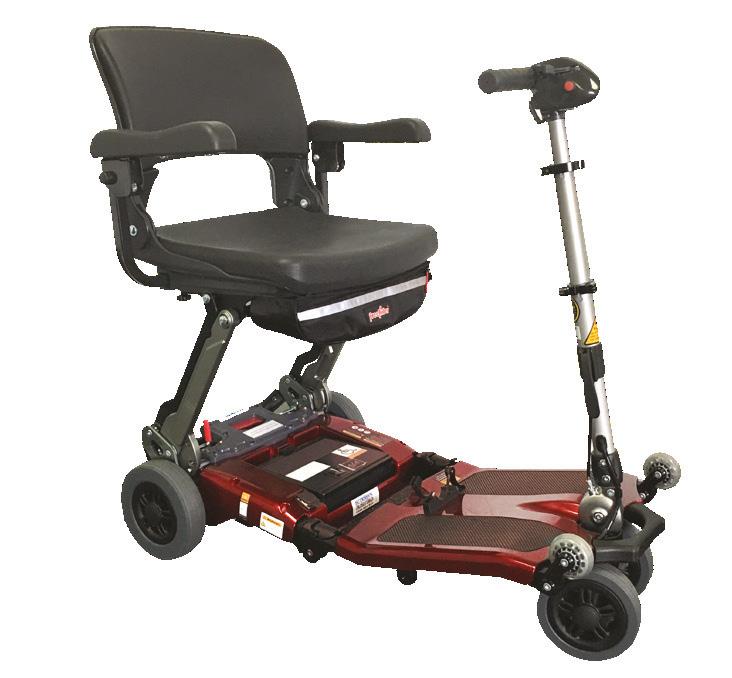
L uggie scooters are also compliant with airline and cruise-ship requirements.
S cooters Australia is the national importer for the Luggie scooter. Visit: www.scootersaus.com.au
Online sales & free delivery* 1300 622 633 www.scootersAus.com.au *Conditions apply 8 models to choose from: • Wide
versions, for greater stability. •
for a smoother ride.
Unfold & Go PREMIUM FOLDING SCOOTERS SCA34714_Unfold-Go-Scooter_79x182mmW_Link.indd 1 1/11/21 9:57 am
track
Soft suspension,
Makes travel easy.
Link to... Travel & Leisure
December/January 2023 58
How do you support the mental health of your clients?
So metimes it can be challenging to know and identify if the person you are caring for is going through a tough time or experiencing poor mental health. Mental health can also be complex to understand and approach and appropriate resources can be hard to find. However, if you are a NDIS worker caring for someone with an intellectual disability, using step-bystep Easy Read mental health programs can be a great starting point.
A mental health program developed with and for people with intellectual disability
O nline mental health programs like Healthy Mind have been designed and developed with help from people with intellectual disability and mental health professionals. This means Healthy Mind has been created using adapted activities translated into Easy Read English, supported by audio, images
and engaging videos to teach users how to recognise and manage their thoughts and feelings.
Using Healthy Mind to support your clients

Healthy Mind is made up of activities such as recognising feelings, breathing, relaxing, taming anger, having more fun and tackling unhelpful thinking. Each of these topics is supported by a printable worksheet with tips and talking points to track progress and
have meaningful conversations with the person you are supporting.
W ho is using Healthy Mind? Since its launch in July 2020, Healthy Mind has reached over 24,000 users across Australia. It is a unique online resource that can support NDIS workers in empowering participants with skills to improve their mental health.
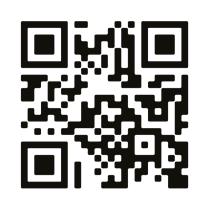
Get Started with Healthy Mind for free https://www.healthymind.org.au/
Looking for ways to support better mental health?
Healthy Mind is an online mental health tool for people with intellectual disability. It is made accessible through Easy English translation, relatable images and supporting audio. Explore the simple and step-by-step activities for free:

• Recognising feelings
• Breathe and relax
• Taming anger
• Having more fun
• Tackling unhelpful thinking.
www.healthymind.org.au
TRAVEL & LEISURE
linkonline.com.au 59
Vision Australia Radio nabs broadcasting award for excellence
Co ngratulations to Vision Australia Radio for winning the Excellence in Outside Broadcasting’ Award at the recent Community Broadcasting Association of Australia (CBAA) Awards.
T he network picked up the award for its 2021 VIC Disability & Sports Recreation Festival broadcast.
T he festival broadcast featured interviews with local inclusive sporting groups, event organises and community participants with the key goal of promoting community participation.
V ision Australia Radio network manager, Conrad Browne said the station was thrilled to receive the award as it highlighted the network’s commitment to providing a voice to unrepresented people in the community.
“A prime ethos of community broadcasting is full community inclusion. While Vision Australia Radio will always be dedicated to its community of interest, people who are blind or have low vision, our connections and relationships with the broader disability community is an embodiment of this ethos.

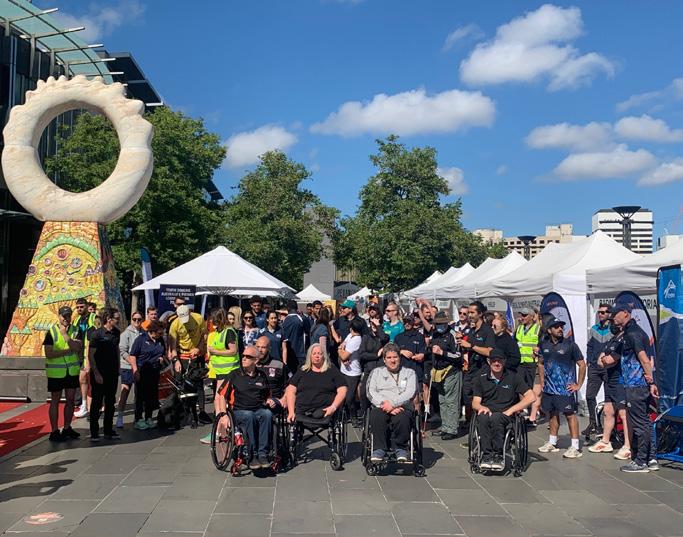
“As this event was held on International Day of People with Disability, it was important to provide an opportunity and a platform to hear from both disability organisations and individuals with lived experience,” he said.
Browne gave praise to Vision Australia Radio staff involved in the broadcast.
“The calibre of nominees in this award was exceptional, so to win was a testament to strong staff collaboration. In particular to Matt Lee
and Sam Colley who both brought their perspective of lived experience to the broadcast.”
V ision Australia Radio will again broadcast as part of this year’s festival on December 2, visit www.dsr.org.au for more on the event and keep listening to your local Vision Australia Radio service for more details: www.varadio.org
Link to... News December/January 2023 60
Accessible Telecoms: Communication options for everyone.
Mo dern life keeps us glued to our phones, Accessible Telecoms understands that new technology can feel daunting or out of reach to many Australians and we are here to help.

T his free service can be used by anyone, and is especially focused on supporting seniors, people with disability, their families, carers, and advocates.
T he website and helpline provide information on devices and their features, compatible accessories, and apps that may solve common issues including:
• Amplifying sound for incoming calls and ringtones
• Simple phones with less confusing options
• Hearing aid compatible options
• Big buttons or physical keys
• Emergency pendants
• Eye gaze, augmentative and other alternative methods
• Captioning
• Magnifying text and images
• Wheelchair mounts
• Online or local training organisations that teach how to use your phone, and much more.
The project is supported by the inclusion team at the Australian Communications Consumer Action Network and developed with the input of an advisory committee formed by experts on senior and disability matters.
T he input of this committee is reflected in the type of products listed, the accessibility features included for each entry, and the accessibility of the content and website.
T his ACCAN initiative was established to address the lack of consolidated, independent and up-to-date information about the accessible telecommunications equipment available in Australia.
T he team at Accessible Telecoms is ready to assist you, so why not get in touch today?
Find out more at: w ww.accessible.telecoms.org.au or call: 1800 442 300
People with Disabilities & Seniors find Phones Tablets Accessories Apps that match your needs ACCESSIBLE TELECOMS Phone: 1800 442 300 SMS: 0438 454 413 accessible.telecoms@accan.org.au accessibletelecoms.org.au
ACCOMMODATION & HOME SUPPORT
is
telecommunication solutions. linkonline.com.au 61
Accessible Telecoms
Australia’s first independent guide to mainstream and assistive
Accolades ring out at 2022 Australian Disability Service Awards
Accolades were flowing on November 9 in the disability service sector as hundreds of people gathered on the Gold Coast for the announcement of winners of the 2022 Australian Disability Service Awards.
At the sector’s night of nights, finalists from around Australia walked the red carpet at the Gold Coast Convention & Exhibition Centre as their achievements as industry leaders and changemakers were showcased.

T he conference was opened by NDIS Minister Bill Shorten, who was unable to attend, but sent a video message. He said the event was an opportunity to take stock and acknowledge the work organisations such as One Community did to improve the care and support services available to them.
“There are around 270,000 disability workers supporting more than half a million participants. I hope you are proud of the work you do because I certainly am,” he said. “The work you do is honourable, and you help to change lives.
“I have big plans for the NDIS, to work with the disability sector and people with disability, but this cannot be done without you.”
The 2022 Australian Disability Service Conference and Awards (ADSCA) did not disappoint with over 450 coming together throughout the day and evening, event organiser One Community director and co-founder Kellie Puxty said. “We continue to be in awe of the incredible work taking place in our sector, by both small
and large business. ADSCA provides a platform to not only connect with our industry colleagues but also share knowledge and success stories. It is an honour to work within this industry, alongside some truly amazing individuals and organisations,” she said.
W inners included a dance program that has cemented a community; a CEO instrumental in building leading notfor-profit organisations and creating opportunities for people with disability; and a simple technological invention giving big results for people who are blind or have low vision.
From the hundreds of nominations received, 36 finalists were shortlisted, and the following 12 announced as winners in a glittering ceremony with more than 300 attendees:
Link to... News December/January 2023 62

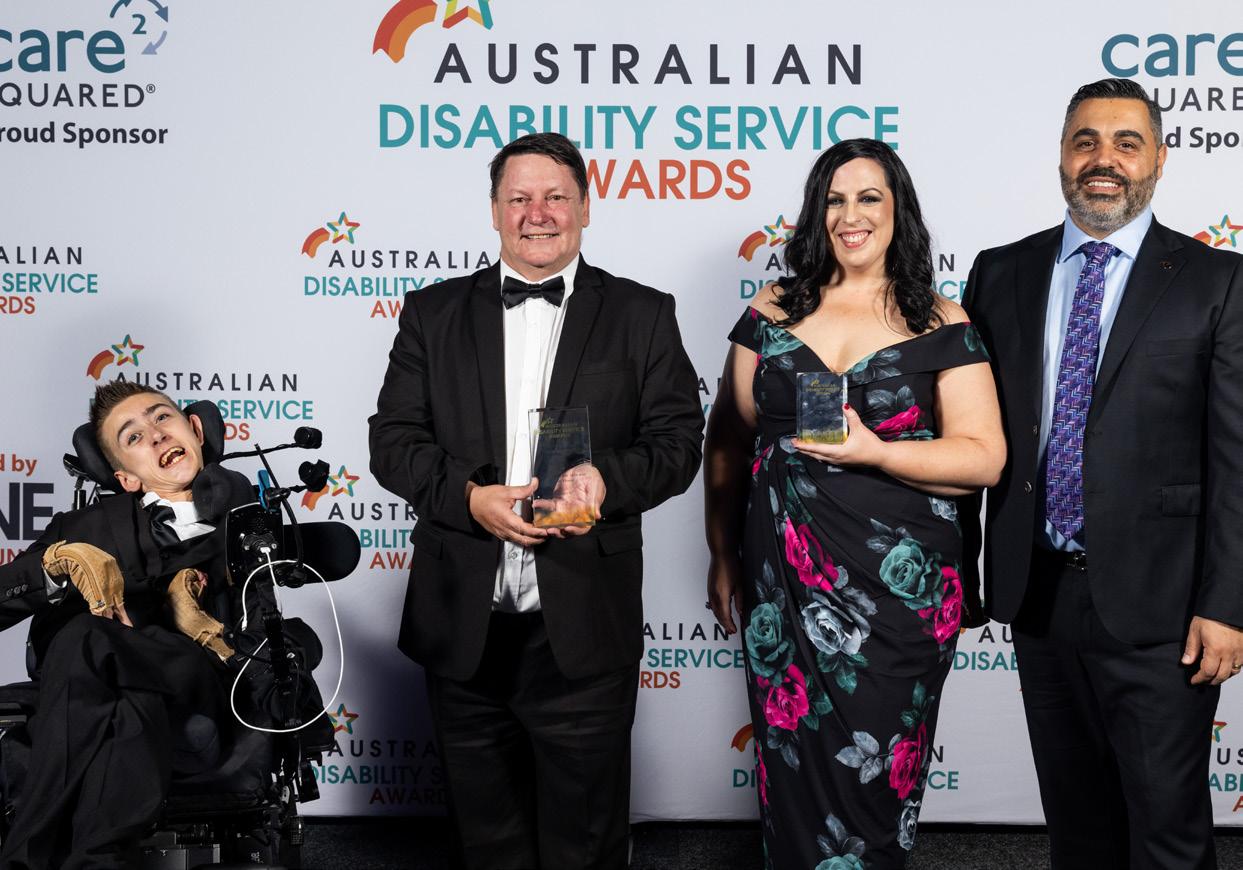



NEWS
The GRP Speech Pathology team
Real Community Services with Maureen, second from right, from Tender Loving Cuisine, Major Conference Sponsor
Finalist and winner for ‘Best Assistive Technology Product’ (Left to right) Riley Saban Finalist from PolySpine, Andrew Backhouse Winner from Braille House, Jenny Gribbin Finalist from Driving Well OT with award category sponsor, George Ajaka from GTK
C are Squared represented by Brooke Bofinger shaking hands with Jack Barker, Major Conference Sponsor from Tender Loving Cuisine
linkonline.com.au 63
Shelley Youman from One Community, Brooke Bofinger and Mark Traves from Care Squared the Major Award Sponsors, and Sandra Birkensleigh from NDIA
The 12 Winners:
B est Assistive Technology Product
Tactile QR Code Indicator, Braille House, Annerley, QLD
Most Outstanding Director/CEO
L aura O’Reilly, Fighting Chance/Hireup, Sydney, NSW
Most Outstanding Support Worker
S haron Moore, Sunnyfield disAbility Services, Tamworth, NSW


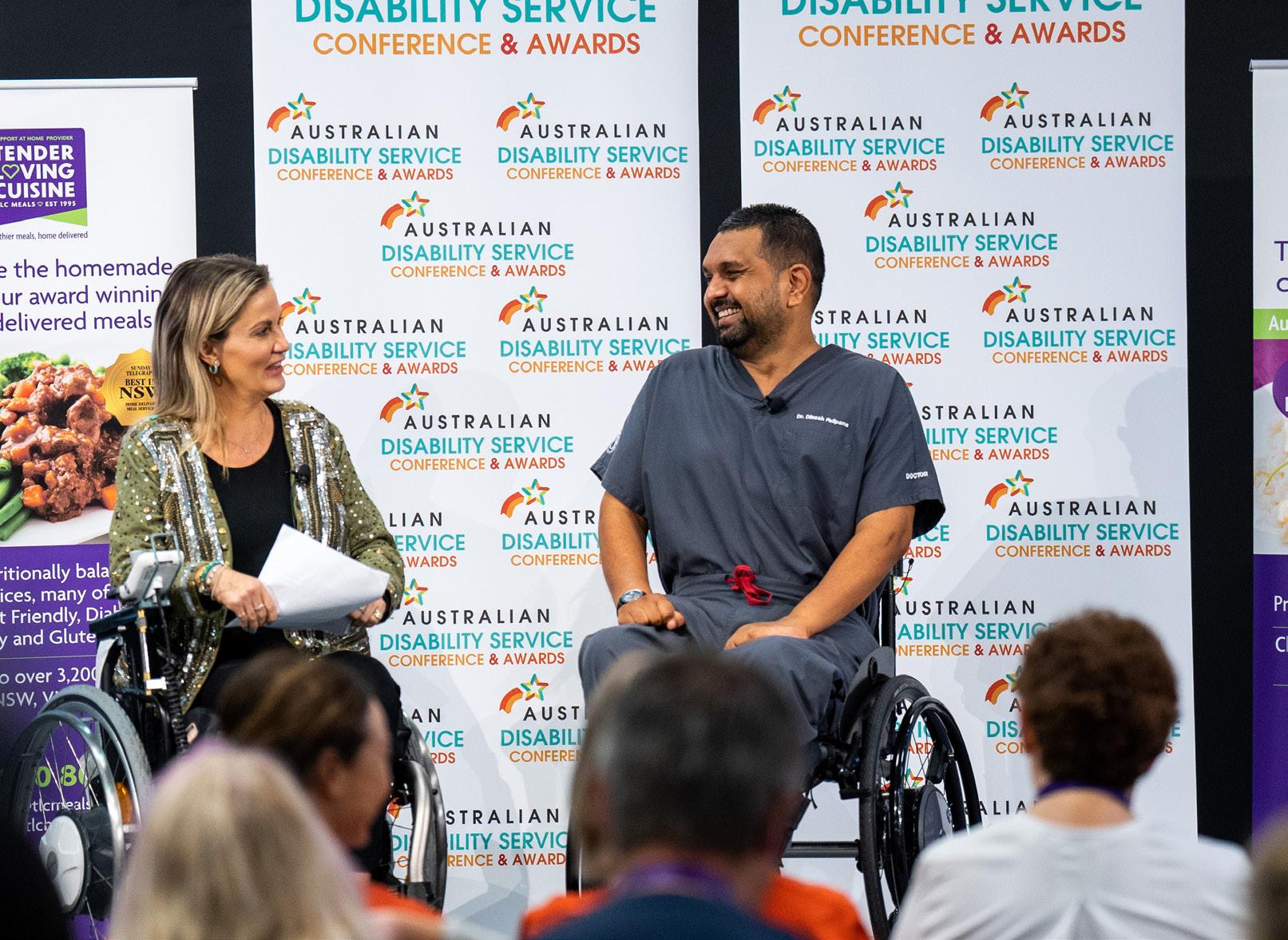
Most Outstanding Support Coordinator

A lison Kidd, Spinal Life Australia, Woolloongabba, Qld
Most Outstanding Allied Health Organisation
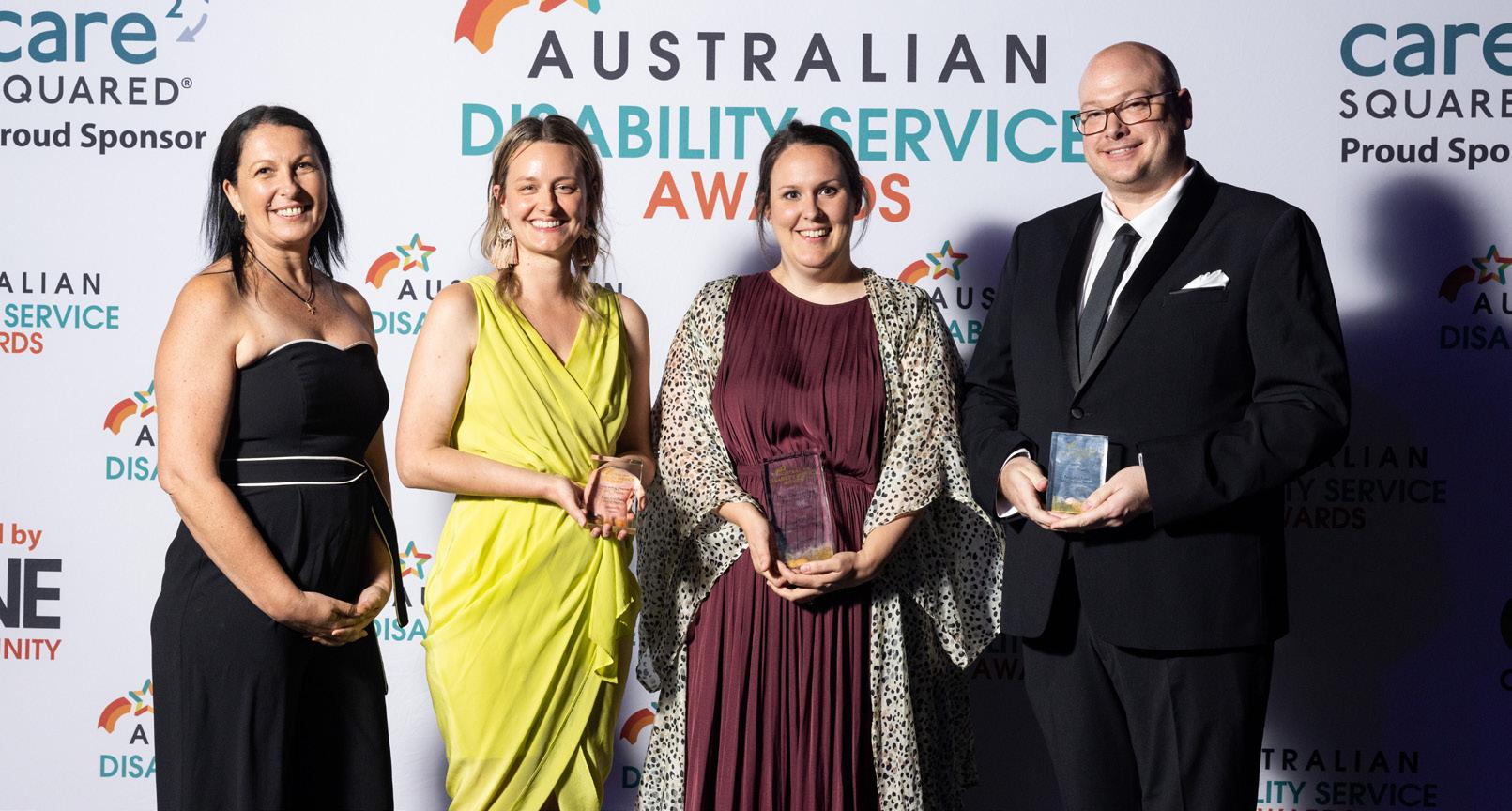
Occupational Therapy Group, Maribyrnong and Bendigo, VIC
Most Outstanding Plan Management Company
A ssist Plan Managers, SA
Most Innovative Community Program
Everyone Can Dance, Camden, NSW
B est Remote Service/Program C are Squared, NSW & QLD
B est Accommodation Provider
Accessible Homes Australia, Gold Coast, QLD
B est Early Intervention Program
T herapy Pro for Kids, Therapy Pro, VIC & QLD
I nnovation in Employment Programs
Hotel Etico, Mount Victoria, NSW
B est New Business PlanCare, Cockburn, WA
Link to... News
Kelly Stempa, Award Category Sponsor from etrainu with finalists and winner for ‘Best CEO/Director category’, Kara Foscholo Finalist from Active Ability, Laura O’Reilly Winner from HireUp/Fighting Chance, Benjamin Keast from ARC Disability Services.
NDS Exhibitor stand, Jason McKey & Chris Kane
Conference MC Karni Liddell & Keynote Speaker Dr Dinesh Palipana
December/January 2023 64
Auslan Interpreter
Sisterwould Giveaway Beauty products for the blind and visually impaired
Li

nk is giving away one set of Sisterwould shampoo and conditioner formulated to make it easier for those who are blind or visually impaired to distinguish between the two products. The products are valued at $58 each and the set is worth $116.

Both the shampoo and conditioner have a gentle formula and contain ginger root known for its restorative properties as well as Australian native river mint and finger lime extract. The products are suitable for all hair and scalp types.

I n a partnership with Vision Australia, all Sisterwould products carry braille and tactile labels with horizontal lines


for the shampoo and dots for the conditioner. Additionally, the shampoo and conditioner have distinctly different textures.
Tell us in 50 words or less why you would like to win these products. Send your entries to kymberly@intermedia.com.au by January 5, 2023.
Prizes are non-negotiable, nontransferable and non-refundable. No cash alternative is available.
T his giveaway cannot be used in conjunction with any other offers.
Sisterwould details: https://www.sisterwould.com/
FUTURE, MY CHOICE EXPO CALENDER 2023
hunterdisabilityexpo.com.au
The My Future, My Choice Disability Expo’s - with FREE entry for all, our Expo’s link people with a disability with hundreds of local providers and present a range of informative and interactive presentations delivered by industry experts.
Our Disability Expo’s are delivered using COVIDSafe practices, and showcase a range of all-ability performances, engaging guest speakers, kids entertainment, café facilities and breakout areas to create a festival atmosphere.
Check out our Disability Expo websites for more information



events@impactinstitute.com.au
sydneydisabilityexpo.com.au
melbournedisabilityexpo.com.au
brisbanedisabilityexpo.com.au
canberradisabilityexpo.com.au
ENTRY IS FREE FOR ALL ATTENDEES! REGISTER VIA THE EXPO WEBSITE FREE ENTRY 02 9025 9380
13 & 14 OCT 4 & 5 AUG 12 & 13 MAY 17 & 18 NOV 1 & 2 SEP 16 & 17 JUN
31 MAR & 1 APR melbournedisabilityexpo.com.au
disabilityexpo.org.au MY
GIVEAWAY linkonline.com.au 65
Taking inclusion in school to greater heights
Wilsonton State School in Toowoomba, Queensland, is widely recognised in the community for its approach to educating students with disability. It recently won the Social Inclusion Award at the 2022 Business disAbility awards. Deputy Principal - Inclusion, Lisa Meiklejohn spoke to Link.

Link to... Education
T he Wilsonton State School
December/January 2023 66
Signing Choir
The school has 504 students, 29 per cent are Indigenous, 13 per cent have English as another language or dialect (EAL/D), 10 per cent are refugees from Iraq, Syria and The Congo, and 23 per cent have a disability. There are 117 students with a disability currently enrolled.
“Some years we get an influx and some years there are only a few new students with disability. Children with a disability can choose to go to their local school where they live. Students who have a severe hearing impairment may be supported through the Auslan Project, and wherever that is in Queensland, that child will have access to an interpreter,” Meiklejohn said.
Meiklejohn is responsible for students who may not be verified and require learning support. She said roles incorporating inclusion have become more widely adopted in Queensland schools.
T he school fosters an inclusive policy with all students participating in learning activities together. Students with literacy or numeracy concerns can receive additional support through learning hubs. There are four teacher aide educational interpreters working with students who have significant hearing loss and use Auslan to access the curriculum.
To support these students, the school made the decision to have Auslan as their Language Other Than English (LOTE) in 2019 and it is taught to all students in Years 5 and 6. This provides students with a lifelong skill to communicate with those, both within the school environment and the community, who use Auslan. It also gives students a valuable insight into the culture of the deaf community which helps raise awareness around diversity.
I n addition to teaching Auslan to Year 5 and 6 students, all parades, events, interviews and meetings are interpreted for both students, staff and deaf parents. Many of the staff have completed various Auslan short courses to assist communicating with students and staff. The region has employed five deaf adults to work as Teacher Aide
Auslan Language Models and they are based at Wilsonton State School, given the ability of the staff and students here to communicate with them.
Staff also have the opportunity to participate in workshops to increase their knowledge of teaching practices targeted to students with disabilities. Each term, the school organises Auslan Short courses with staff from various schools often attending the courses.
At Wilsonton there are eight students with diagnosed hearing loss and three of them are in the Auslan Project.
“We have 156 Indigenous students as well as students from The Congo, Iraq and Syria. When the refugee students from Iraq and Syria arrived, we had interpreters to help with their English, which they picked up very quickly.
The signing choir is reborn
According to Meiklejohn students love to learn Auslan and many join the school signing choir, that started in the 1990s when Wilsonton was a dedicated school for children with hearing loss. When the numbers declined the choir faded out, but in 2014 when the first prep student under the Auslan Project enrolled, the choir was reborn and has been signing ever since.
T he choir performs at school events including Anzac Day parades, graduation ceremonies, school fetes and community events such as the Annual Mayoral Christmas Carols, Under 5s day, in shopping centres and most recently at the 2021 disABILITY Awards. Parents are invited to attend graduation ceremonies too.
T here are between 15 to 30 students involved with the signing choir, aged between seven and 12 years. Older students who have been in the choir for up to five years, give up their lunch breaks to practice weekly.
“Quite a few of the refugee students can have up to four languages including two native languages, English and Sign Language. The majority of students with disability are on the autism spectrum or have vision, hearing, physical or speech language impairments. Students are aged from five to 12 years,” Meiklejohn said.
There are four disability toilets, one with an electronic change table.
A ll teacher aides are trained to do a change and for special equipment like hoists. Education Queensland physiotherapists and occupational therapists come to train staff. A school nurse also gives training on epi pens and insulin injections.
Most rooms have ramps, including the school hall that has a lift onto the stage with modifications progressively added as required.
“The school will always accept any invitation to showcase our signing choir, whether it be within the school or the wider community to promote inclusivity and understanding of deaf culture. We are so proud of our signing choir,” Meiklejohn said.
T he school also participates in awareness events such as Epilepsy Day, Jean for Genes Day and Austism Day. Past students with disability return to the school for work experience and employment.
T he signing choir performs in Auslan, with an Auslan Teacher Aide helping with the songs.
A s well as the school choir, and the signing choir, there is a school band and the Willow Brolgas dance group, with an Indigenous teacher taking classes.
T he choir is already practicing for Christmas with songs The Little Drummer Boy …yes complete with a drummer boy…and Rockin ’Around the Christmas Tree, on the musical program.
EDUCATION
The school fosters an inclusive policy with all students participating in learning activities together.
linkonline.com.au 67
In the Frame fun running
In the first staging of the Frame Running Camp & Cup in the Southern Hemisphere, 65 athletes competed in various events over three days at the University of Queensland Sport Athletics Centre.
Inventor, Connie Jansen attended with her daughter from Denmark, providing advice and encouragement to the athletes. Events included track races from 60m to 800m as well as a Fun and Games Zone, Research Zone and presentations from members of the Frame Running community.

The finalists for 100m, 200m and 400m braved the wind and rain to complete the final day of racing. Sponsor Dejay are looking forward to a bigger event in 2023.
Calling the shots on King Island

Fo under of Empower golf Australia, James Gribble, has become the first quadriplegic to play Cape Wikham on King Island. The challenge became possible thanks to Bali bombing survivor and double leg amputee, Ben Tullipan, as well as King Island local, Jigs Denby. Planning and preparation included transporting the 200kg ParaGolfer to the remote island, transferring on and off tiny aircraft and negotiating the exposed and rugged terrain of the golf courses often battling 70km/h winds for four rounds in four days for a truly ground-breaking adventure.

One & All Fashion Event
Over 200 people rocked up to the One&All fashion night to celebrate the first anniversary of the inclusive community arts hub in Sydney. This unique loft space offers workshops for the “body, mind and soul” for those with disability and mental health issues.
A highlight of the evening was a fashion parade where hub participants took centre stage. The concept has been so successful there is a waiting list to join and next year the hub will be open five days a week.
Link to... Happenings
Team Spirit Award winner, Ivy Rogers.
James Gribble, Ben Tullipan and Jigs Denby
December/January 2023 68
Australian fashion in the One&All spotlight
Business disABILITY awards a sell-out Sunshine butterflies takes to the wings


The Business disABILITY award gala dinner that recognises social and workplace inclusion with 10 award categories was a big night with 368 guests attending the event in Toowoomba. The Judy Antonio Memorial Award went to educator and disability advocate, Sharon Boyce and winner of the Social Inclusion Award was Wilsonton State School. Guests were entertained by keynote speaker, amputee and DJ Tom Nash and Australian opera singer Tim McCallum.
Sp ring was in action on the Sunshine Coast when Sunshine Butterflies held its annual Walk in Wings along the Noosa River, with a special appearance on Channel 7 Sunrise.
T he Sunshine Butterflies were also joined by Channel 10 who filmed a segment for Studio 10. The charity was also the main beneficiary for the 2022 Cooroy Mountain Spring Festival that raised $20,000.
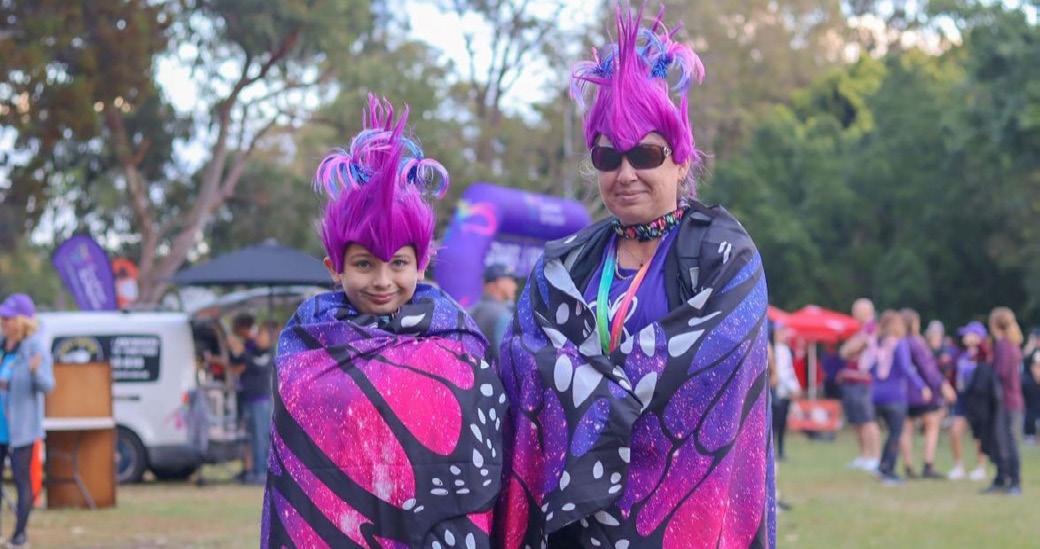
An enterprising café wins award Everest Carnival Fashion Lunch
The Everest Carnival Fashion Lunch aligned with the Australian Turf Club to raise funds for SpinalCure Australia at Sydney’s Randwick Racecourse. SpinalCure Australia Ambassador Kerri-Anne Kennerley was the ATC’s Women of Influence guest speaker at the event where all proceeds went towards Project Spark, SpinalCure’s flagship research program helping to develop neurostimulation treatments to restore meaningful function to people living with SCI in the short term, that is currently undergoing clinical trials.
Wangaratta social enterprise café, Where Is My Coffee? took out the 2022 Victorian Disability Award for excellence in employment outcomes.
T he café that promotes job for people with disability, and supported by Villa Maria Catholic Homes (VMCH), opened in December 2021 and has mentored 20 trainees with two becoming full time employees. VMCH is opening a second social enterprise café later this year.
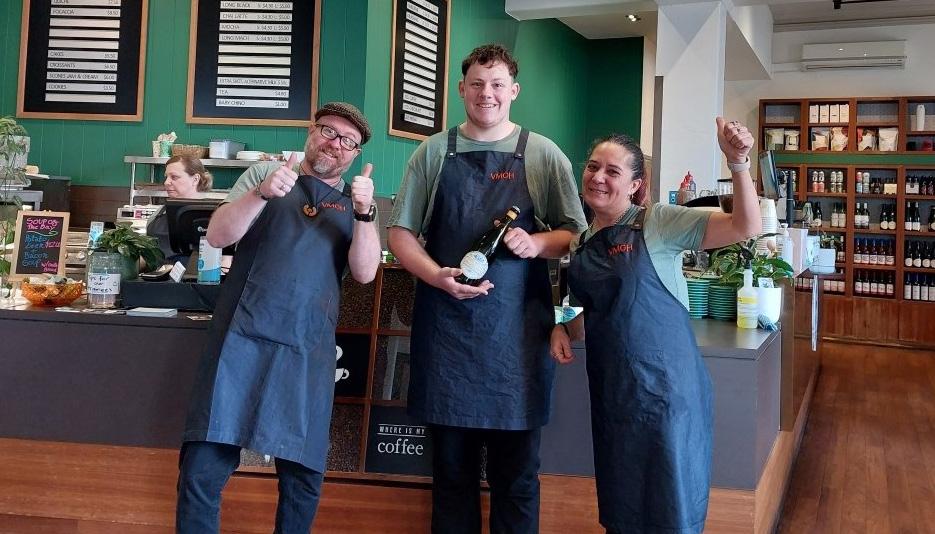
HAPPENINGS
Dean Martelozzo, Sam Tait & Alex Richter
Melitta Patti and Lisa Meiklejohn (Wilsonton State School) and Ben Holmes (Semloh Support Services)
Cornelius and Jodie with trainee Alex (centre)
linkonline.com.au 69
Enjoying a Walk in Wings
Fearless Films marks IDPwD
engaged in meaningful employment, entrepreneurial or within a business, normalising disability in the workforce and highlighting the benefits to the wider community.
T he stories include an entrepreneurial woman who has turned her inability to read into a career shredding highly confidential documents and a young man who’s learning to walk again sharing positivity as the ‘Happy Ambassador’ of a rehabilitation centre.
people with disability in the making of the films as the overarching aim of the series was to promote a more inclusive workforce. She said her team was committed to bringing stories to the screen that made people rethink their views on people living with disability.
Afilm series made by people with disability is available now to view following screenings nationally prior to International Day of People with Disability on December 3.

T itled ‘People with Disability Carving Careers’, Fearless Films Season 4 features six people who are
T he Fearless Films franchise is a project by Feros Care, produced with the assistance of student filmmakers from Bus Stop Films, that runs a film studies program for people with intellectual disabilities.
Feros Care disability and community development executive manager, Jo Field said it was important to include
What’s On Calendar
DECEMBER
D ECEMBER 10: Arts Access Victoria Snug Rock Music Markets, Collingwood Yards www.artsaccess.com.au
JANUARY
J A NUARY 30-31: International Conference on Disability & Diversity –Digital www.waset.org/disability-healthcaredisparities-and-social-determinants-ofhealth-conference-in-january-2023-insydney
JANUARY 30-31: International Conference on Adaptive Sports Technology and Equipment - Digital www.waset.org/adaptive-sportstechnology-and-equipment-conferencein-january-2023-in-sydney
FEBRUARY
F E BRUARY 25-26: Source Kids Disability Expo Adelaide Convention Centre www.sourcekids.com.au/disability-expo/
MARCH
MARCH 3 4: Disability Connection Expo Brisbane Exhibition & Convention Centre www.developingauscommunities.com.au
MARCH 16-17: Australian Inclusive Schooling Conference - Digital Showcasing current research, innovative approaches and strategies to include and engage students with disabilities. www.inclusiveschoolingconference. com.au/
Feros Care has also launched an online inclusive employment hub where employees, employers and entrepreneurs can access resources and find current job vacancies at the not-for-profit, aged-care and disability service provider.
Field and her team of NDIS local area coordinators have working to connect people with disability and employers, hosting employment expos and sharing resources on a ‘ways to work’ webpage.
V iew the full series on: www.feroscare.com.au/fearless4
MARCH 25-26: Source Kids Disability Expo
Sydney Exhibition & Convention Centre www.sourcekids.com.au/disability-expo/
M A RCH 31-APRIL 1: Nepean Disability Expo www.disabilityexpo.org.au/
Link to... Happenings
December/January 2023 70
So everyone can thrive
We want to help every Australian build a connected future, including those who have difficulty using a standard home phone.
Telstra’s Disability Equipment Program offers a range of solutions to support customers who are older or have a disability.

www.telstra.com/disability
Visit telstra.com/disability, or call our Hotline 1800 068 424 (Voice), 133 677 (TTY).
FOCUS ABILITY ON





































































 By Alex Oswald
By Alex Oswald






























































 Funded by the Australian Government Department of Social Services.
Funded by the Australian Government Department of Social Services.

































































































































































